Pulse the Magazine of Texas Tech University Health Sciences Center
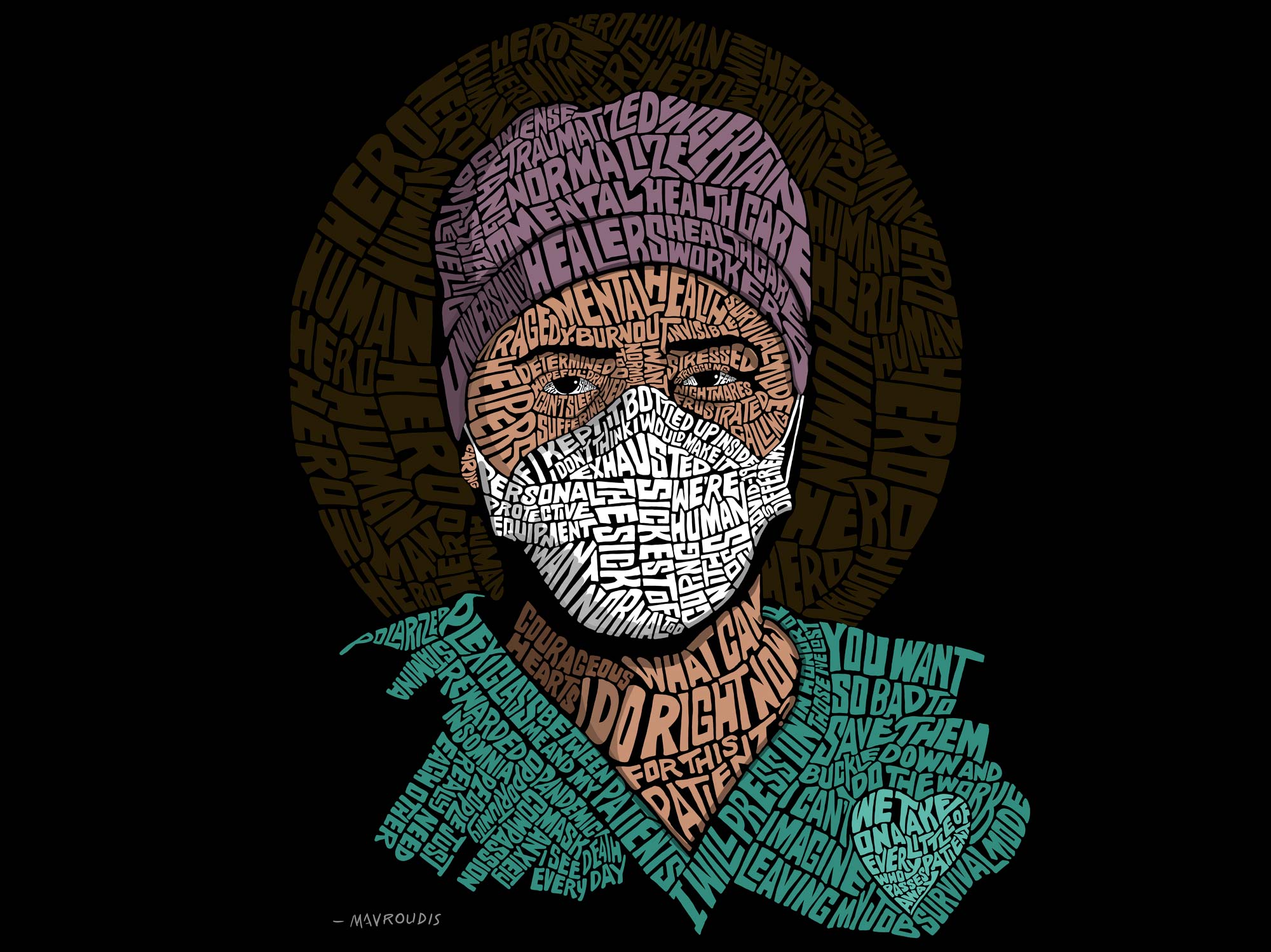
presidential
distinguished
alumni
Cyndy Banik Dunlap
DNP, RN, NEA-BC, FACHE
Vice President and Chief Nursing Officer
Providence Healthcare Network
School of Nursing
Presidential Distinguished Alumni
Cyndy Dunlap, DNP, RN, NEA-BC, FACHE, has dedicated 20 years to health care leadership. Her service includes efforts to improve quality and patient safety endeavors and legislative advocacy for hospitals through the Texas Hospital Association. She also served as president of the Texas Organization of Nurse Leaders and on committees of the American Organization of Nurse Leaders. Additionally, Dunlap established the first HIV/AIDS program for a region of Texas.
Dunlap earned her Doctor of Nursing Practice from the Texas Tech University Health Sciences Center School of Nursing. She also holds a master’s degree in public administration from Texas State University and a bachelor’s degree in nursing from Baylor University.
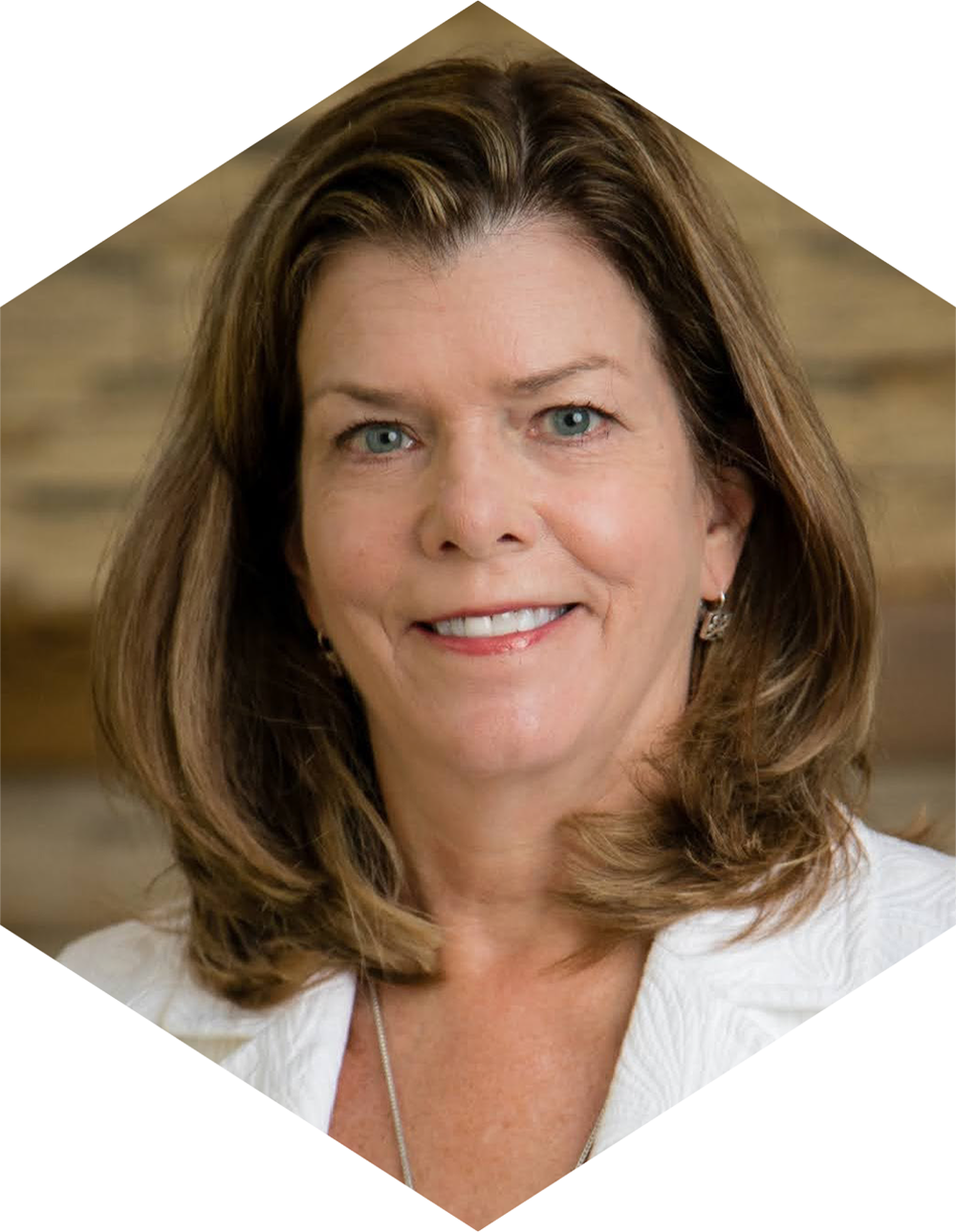
presidential
distinguished
alumni

Cyndy Banik Dunlap
DNP, RN, NEA-BC, FACHE
Vice President and Chief Nursing Officer
Providence Healthcare Network
School of Nursing
Presidential Distinguished Alumni
Cyndy Dunlap, DNP, RN, NEA-BC, FACHE, has dedicated 20 years to health care leadership. Her service includes efforts to improve quality and patient safety endeavors and legislative advocacy for hospitals through the Texas Hospital Association. She also served as president of the Texas Organization of Nurse Leaders and on committees of the American Organization of Nurse Leaders. Additionally, Dunlap established the first HIV/AIDS program for a region of Texas.
Dunlap earned her Doctor of Nursing Practice from the Texas Tech University Health Sciences Center School of Nursing. She also holds a master’s degree in public administration from Texas State University and a bachelor’s degree in nursing from Baylor University.

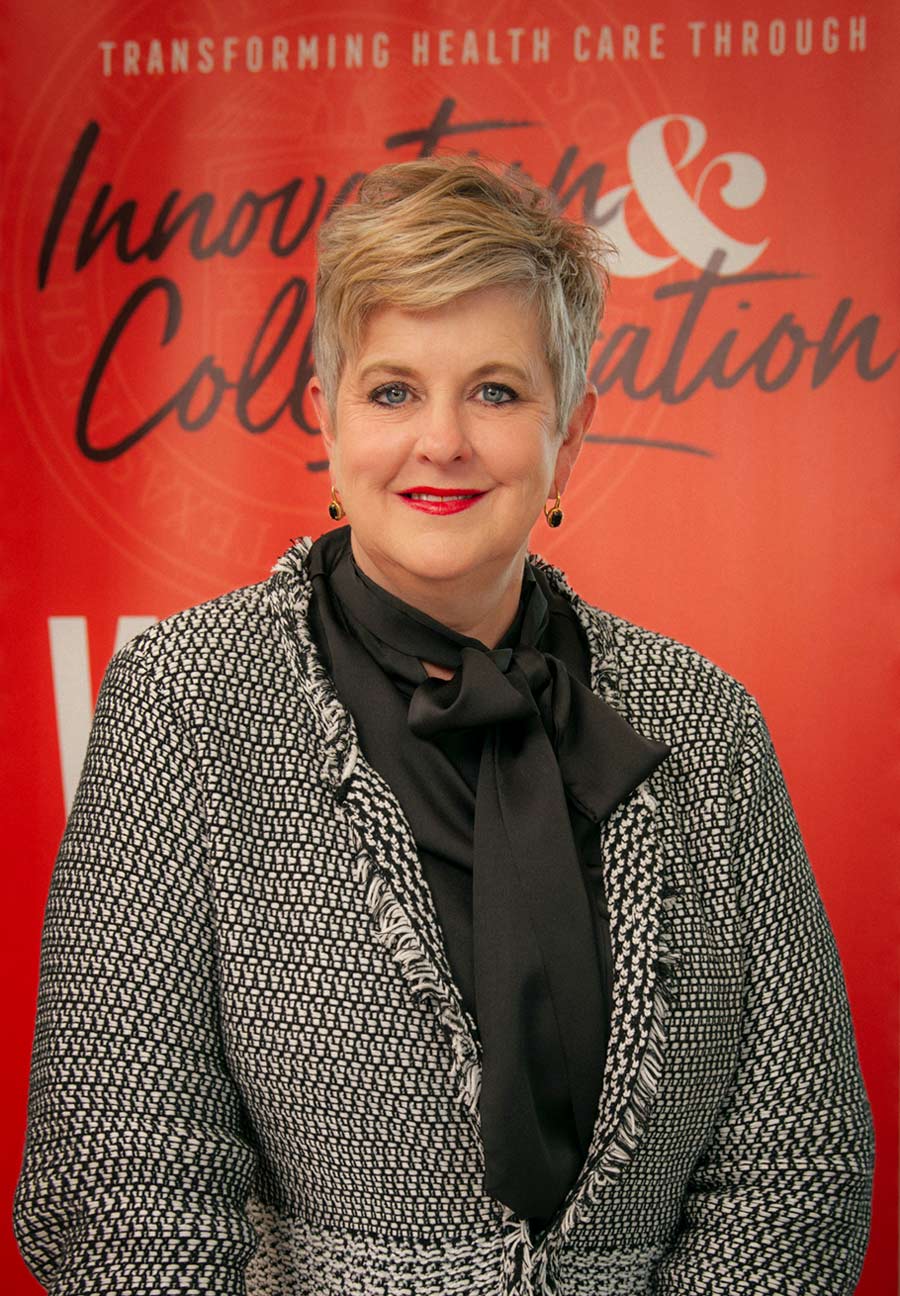
Innovation — Will it be a Buzzword or Building Block?
At TTUHSC, innovation and collaboration are critical pillars for our vision to transform health care. As such, they are also the driving force of our five-year strategic plan. You can learn more on our website at https://bit.ly/34GnhSJ.
More than 30 years ago, TTUHSC conducted its first telemedicine visit (see “Telemedicine’s Perfect Storm” in Pulse Winter 2021). Through innovation, this practice of distance medicine has evolved into one significantly impacting multiple areas of health care.
Editor’s Note
In this issue, we are honored to share their stories as our health care heroes reveal their vulnerability and humanity. They openly discuss the fears, frustrations and failures that come as they heroically work to keep us safe and healthy.
Mental health is a conversation that, thankfully, is gaining societal acceptance, and that’s one of the pandemic’s silver linings. We hope the article strengthens and deepens the conversation.
If you are struggling with mental health issues, please know that you are not alone, and help is available. We have shared a list of resources on page 24 in “The Humans Behind the Heroes” article.
The mind and body are not separate. What affects one affects the other.
Dear Pulse,
Tajikistan
Dear Pulse,
Lubbock, Texas
Dear Pulse,
Paris, TExas

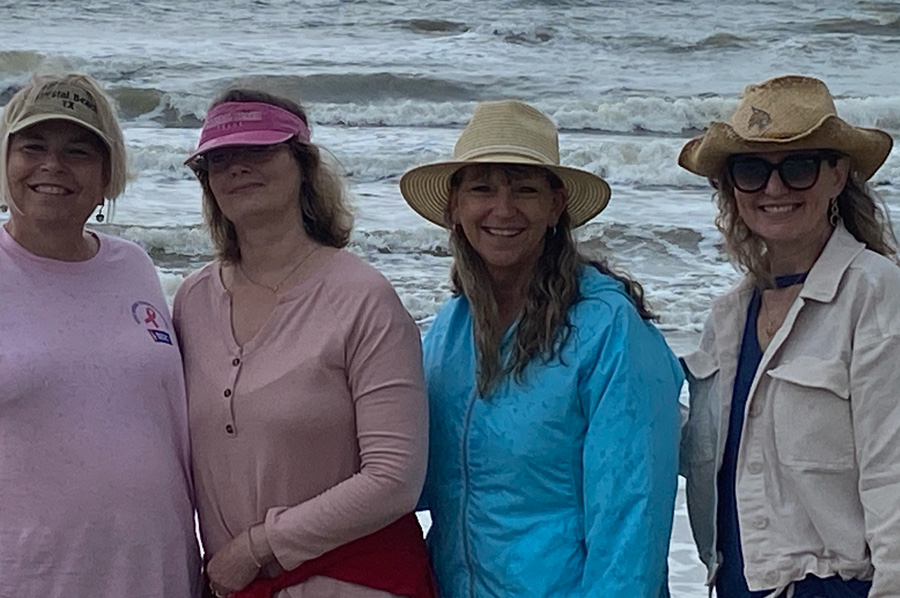
Masthead

Editor
Danette Baker
Managing Editor
Kara Bishop
Design
Jim Nissen
Contributors
Susan Marquardt Blystone, Kim Catley, Carolyn Cruz, Elise Gibson, Tina Hay, Mark Hendricks, Neal Hinkle, Kami Hunt, Artie Limmer, John Mavroudis, Sarah Maxwell, Erin Peterson, Glenys Young
Administration
President
Lori Rice-Spearman, PhD
(Health Professions ‘86)
Vice President of External Relations
Ashley Hamm
Assistant Vice President of External Relations
Mattie Been, Amarillo
Jessica Zuniga, Permian Basin
development
Chief Advancement Officer
Cyndy Morris
Gift Officers
Kevin Friemel, Smiley Garcia,
Kendalyn Rising, Clifford Wilkes
Alumni Relations
manager
Peyton Sifrit
Contact Us
pulse@ttuhsc.edu
TTUHSC External Relations
3601 Fourth Street STOP 6242
Lubbock, TX 79430-6242

Bachelor of Science in Clinical Laboratory Science
Second Degree Bachelor of Science in Clinical Laboratory Science
Post-Baccalaureate Certificate in Clinical Laboratory Science
Master of Science in Molecular Pathology
Master of Physician Assistant Studies
Rehabilitation Sciences
Master of Athletic Training
Doctor of Occupational Therapy
Post-Professional Doctor of Occupational Therapy
Doctor of Physical Therapy
Doctor of Science in Physical Therapy
Doctor of Philosophy in Rehabilitation Science
Concentration in Communication Sciences Disorders
Concentration in Movement Sciences Disorders
Speech, Language & Hearing Sciences
Doctor of Audiology
Bachelor of Science in Speech, Language, and Hearing Sciences
Second Degree Bachelor of Science in Speech, Language, and Hearing Sciences
Master of Science in Speech-Language Pathology
Healthcare Management & Leadership
Bachelor of Science in Healthcare Management
Master of Science in Healthcare Administration
Graduate Certificate in Health Informatics and Data Analysis
Graduate Certificate in Health Systems Policy and Management
Graduate Certificate in Healthcare Finance and Economics
Graduate Certificate in Health Systems Engineering and Management
Graduate Certificate in Long Term Care Administration
Clinical Counseling & Mental Health
Master of Science in Addiction Counseling
Master of Science in Clinical Mental Health Counseling
Master of Science in Clinical Rehabilitation Counseling


Bachelor of Science in Clinical Laboratory Science
Second Degree Bachelor of Science in Clinical Laboratory Science
Post-Baccalaureate Certificate in Clinical Laboratory Science
Master of Science in Molecular Pathology
Master of Physician Assistant Studies
Rehabilitation Sciences
Master of Athletic Training
Doctor of Occupational Therapy
Post-Professional Doctor of Occupational Therapy
Doctor of Physical Therapy
Doctor of Science in Physical Therapy
Doctor of Philosophy in Rehabilitation Science
Concentration in Communication Sciences Disorders
Concentration in Movement Sciences Disorders
Speech, Language & Hearing Sciences
Doctor of Audiology
Bachelor of Science in Speech, Language, and Hearing Sciences
Second Degree Bachelor of Science in Speech, Language, and Hearing Sciences
Master of Science in Speech-Language Pathology
Healthcare Management & Leadership
Bachelor of Science in Healthcare Management
Master of Science in Healthcare Administration
Graduate Certificate in Health Informatics and Data Analysis
Graduate Certificate in Health Systems Policy and Management
Graduate Certificate in Healthcare Finance and Economics
Graduate Certificate in Health Systems Engineering and Management
Graduate Certificate in Long Term Care Administration
Clinical Counseling & Mental Health
Master of Science in Addiction Counseling
Master of Science in Clinical Mental Health Counseling
Master of Science in Clinical Rehabilitation Counseling
No Escaping This Lesson
The “Escape Room Challenge,” an annual event sponsored by the TTUHSC Office of Interprofessional Education, invites students from multiple disciplines to work together in deciphering clues and completing puzzles to help their virtual patients.
Participants earned IPE credit—a graduation requirement for all degrees—and many came away with greater appreciation for the value that each discipline brings to a given situation.
Neal Hinkle

 TTUHSC Together
TTUHSC Together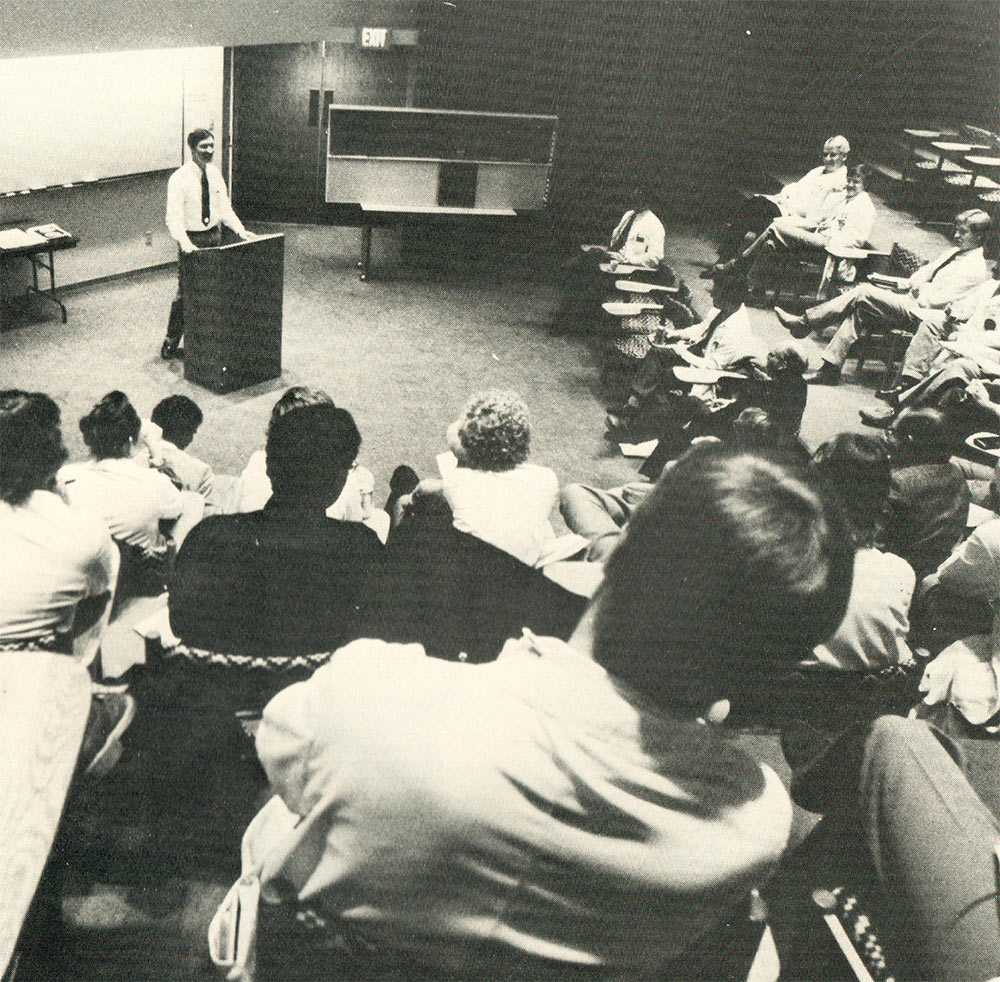
A Half-Century of Partnership
I Heard That!
“When you hear and see the presentations, I hope it is through the eyes of a parent. I hope you think about the devastating effects this would have if your child were caught up in this unimaginably horrific nightmare.”
“We have a loss of language but not intelligence.”
“Dr. Min Kang has been bringing me up to speed on a large volume of information as it pertains to the Office of Research, so I want to extend my heartfelt thanks to her. She’s shared her cell phone number with me so I will have the opportunity to benefit from her extensive knowledge into the future as well. She’s done an amazing job.”
TTUHSC in Amarillo Celebrates its 50th Anniversary
“I’ve never gone to administration or to my direct report with an idea and just been totally shut down,” said Teresa Baker, MD, professor in the Department of Obstetrics and Gynecology. “We may have to rework the idea but TTUHSC in Amarillo has always supported growth and innovation.”
TTUHSC in Amarillo is willing to partner and collaborate with neighboring institutions as well, said Baker. “We’re not prideful or territorial here, we just want to make a positive difference in the lives of the community members here.”
Valerie Kiper, DNP, RN, (Nursing ’13) newly appointed dean of the School of Nursing in Amarillo, agrees. “Growth and innovation has been a long-time theme of this university in Amarillo. We’ve made our mark in Amarillo in pioneering new clinical programs and treatments, as well as advancing research.”
TTUHSC’s dedication to the Panhandle is something to celebrate.
 Faculty profile
Faculty profileMedicine and Genetics Collide
Professor, Department of Pediatrics
Director, Prenatal Genetic Laboratory
School of Medicine
Vijay Tonk,PhD, DABMGG, FACMGG, works at the place where medicine and genetics meet, focusing on genetic causes of developmental disorders like Down syndrome, birth defects like hydrocephalus, and cancers like childhood and adult leukemias.
If a child had developmental disabilities or autistic behaviors, you’re the one who does the genetic analyses for those problems, right?
Yes, I receive blood samples from pediatricians when their patient is not meeting developmental milestones, has birth defects of the heart or intestine, or has later intellectual disability with autistic behaviors. My laboratory performs chromosome and DNA testing that will find the cause of the child’s problem, like the extra copy of chromosome 21 (trisomy 21) that causes Down syndrome.
Where does pediatric cancer fit into your work?
I developed a state-of-the art laboratory for pediatric cancer testing, one of only a few labs in the country certified by the national oversight agency of hema-tologist-oncologists called the Children’s Oncology Group. My testing addresses all types of child and adult cancers with important implications for diagnosis and therapy.
You primarily work with physicians and rarely meet the patients themselves. Is that strange for you?
Many physicians are unfamiliar with our new DNA technology and are uncomfortable explaining it to patients. I am happy to explain these complicated results to people, and always tell them: “Why don’t you come visit me? I’m here all the time. Just come.”

 for the record
for the recordStat!
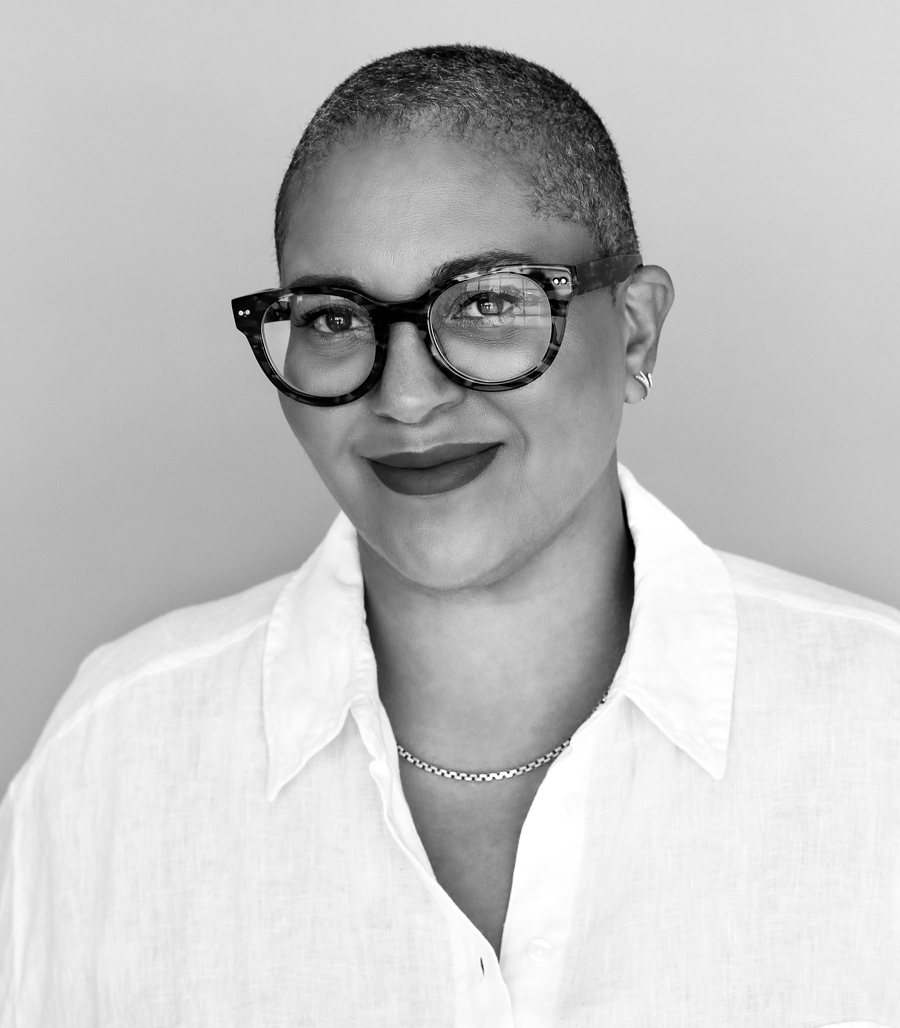
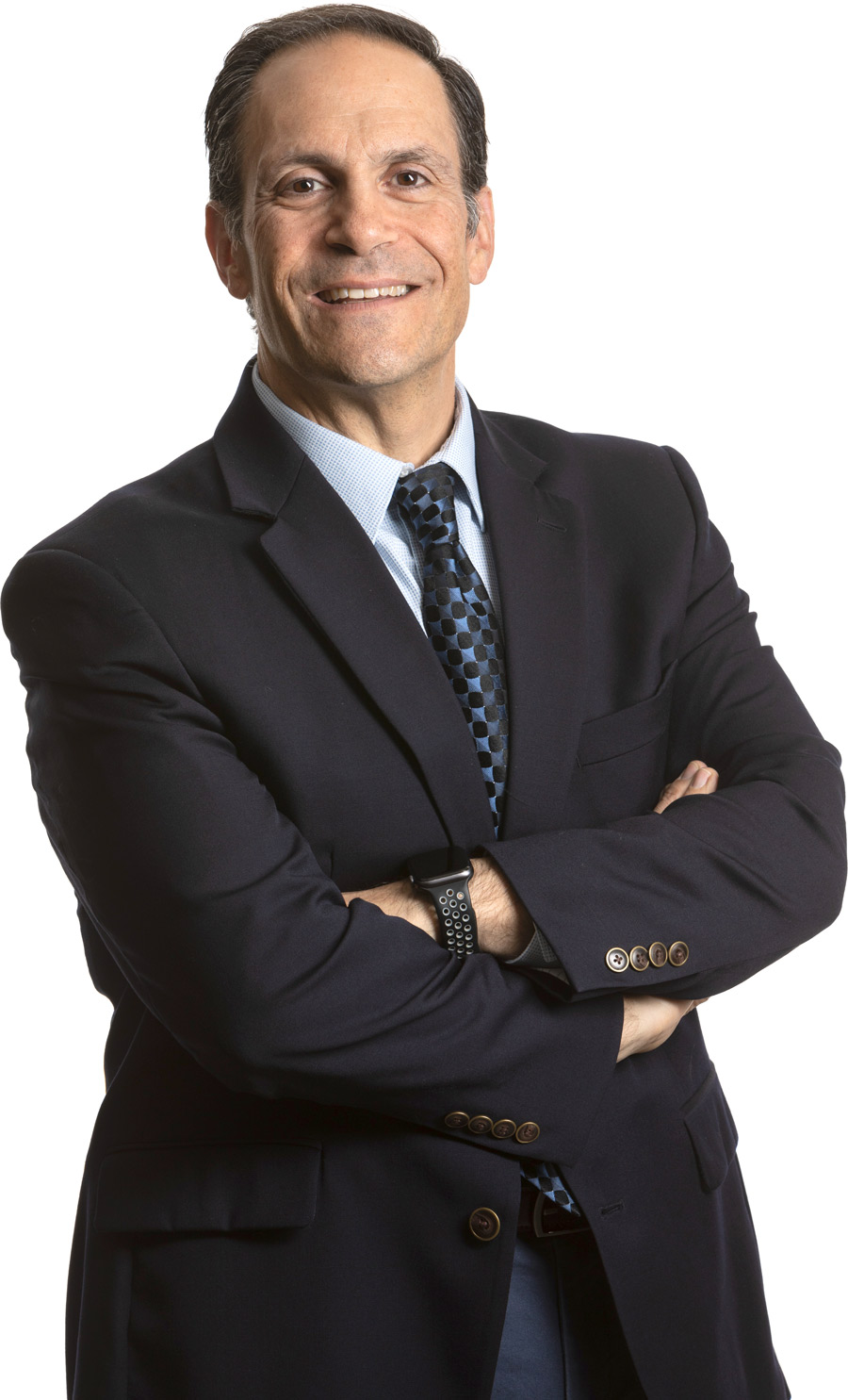

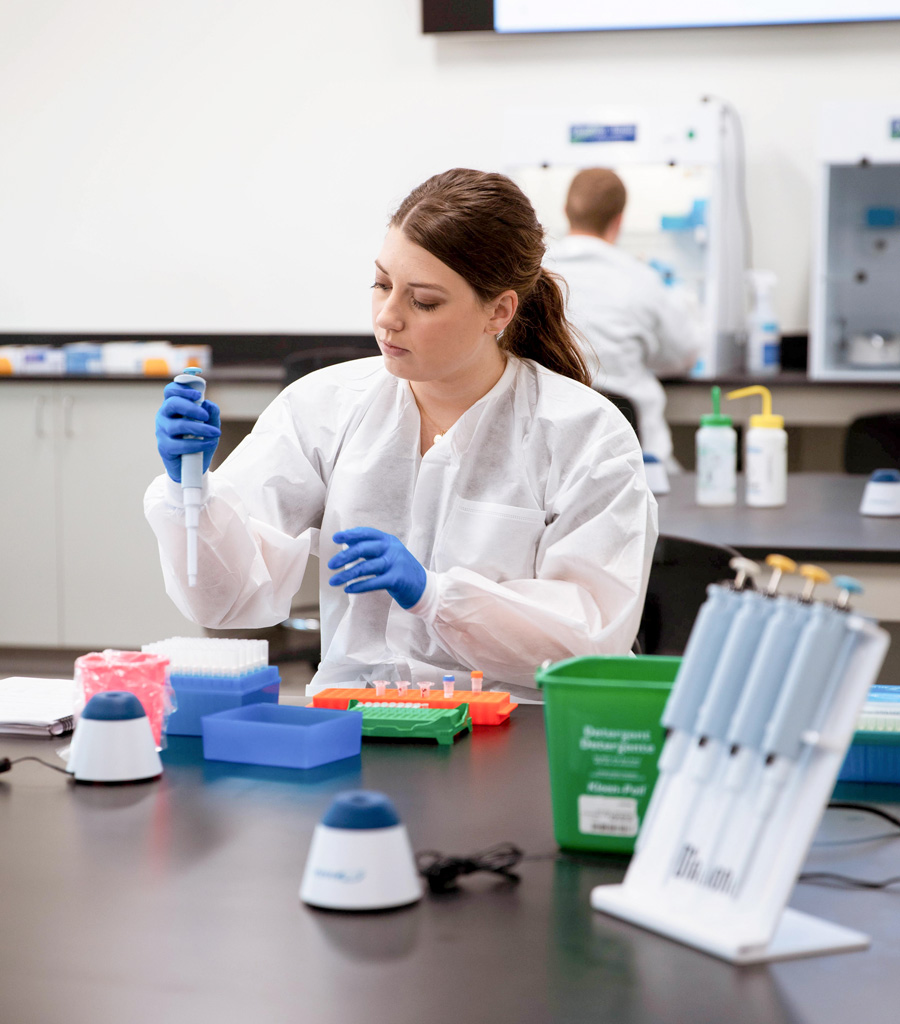

New Treatment for Depression
Patients diagnosed with depression often have difficulty finding relief. Medication and therapy may help, but these treatments may not work for all patients. TTUHSC has introduced an innovative way to address treatment resistant depression through deep transcranial magnetic stimulation (TMS).
Deep TMS therapy consists of 36 total sessions. Most insurance companies now cover the procedure, including Medicare, and patients are able to self-refer for treatment.
Deep TMS machines are located in both Amarillo and Lubbock Texas Tech Physician Psychiatry clinics.
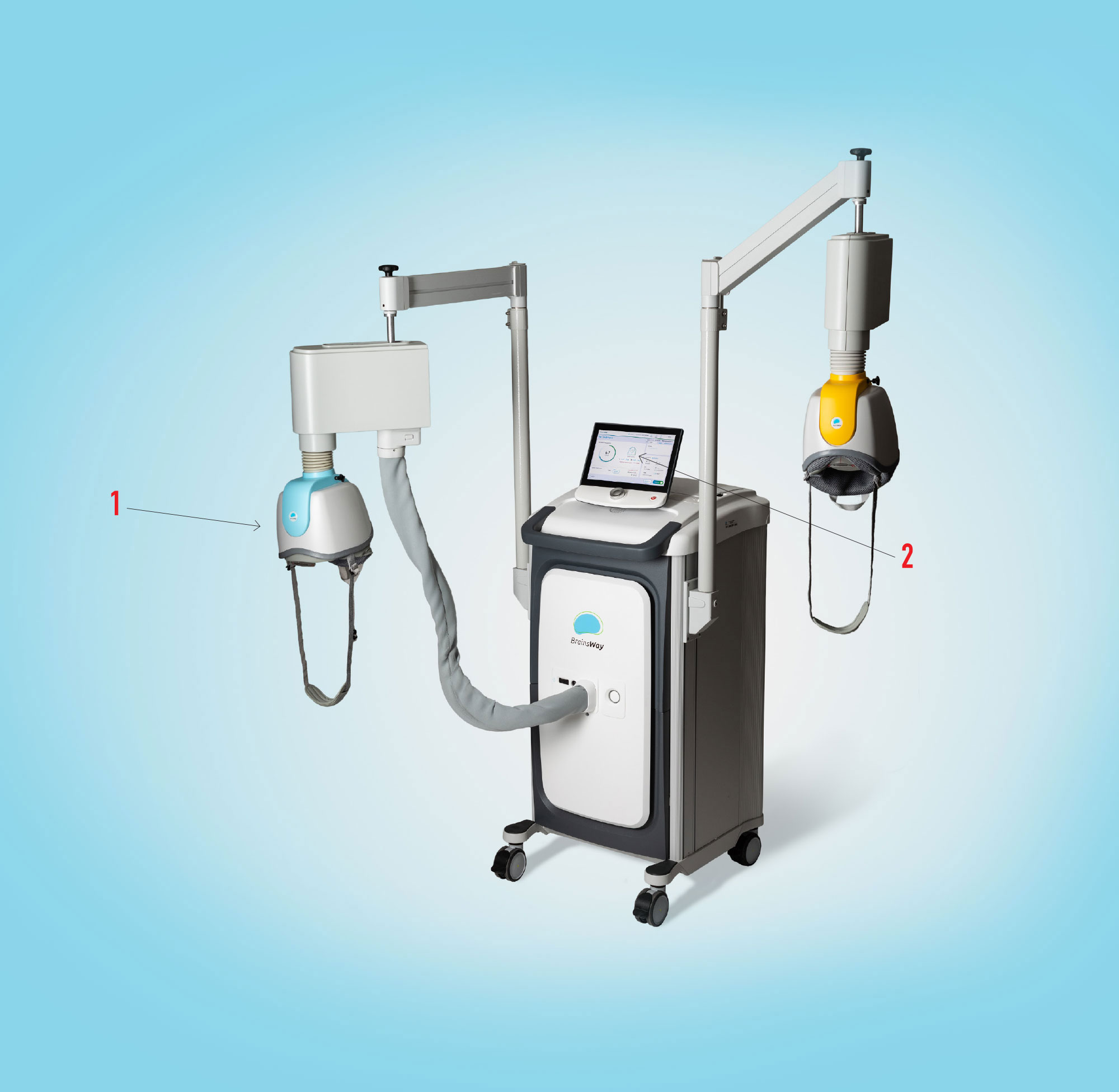
1
Once the patient is seated at the machine, the helmet is positioned according to the grid coordinates of a blue cap that is placed on the patient’s head beforehand. Inside the helmet is the H-Coil, which is a novel patented structure designed to maximize electrical stimulation of deep brain regions by using directed electromagnetic fields to stimulate neurons deep inside the brain.
2
The touch screen monitor aids the provider in targeting deep brain regions. Deep TMS alleviates depression by stimulating neurons in the dorsolateral prefrontal cortex of the brain that may be inactive. Once targeted, magnetic pulses are delivered in intervals — two seconds on, 20 seconds off — for 20 minutes.
 School of Medicine
School of MedicineExecutive Decision
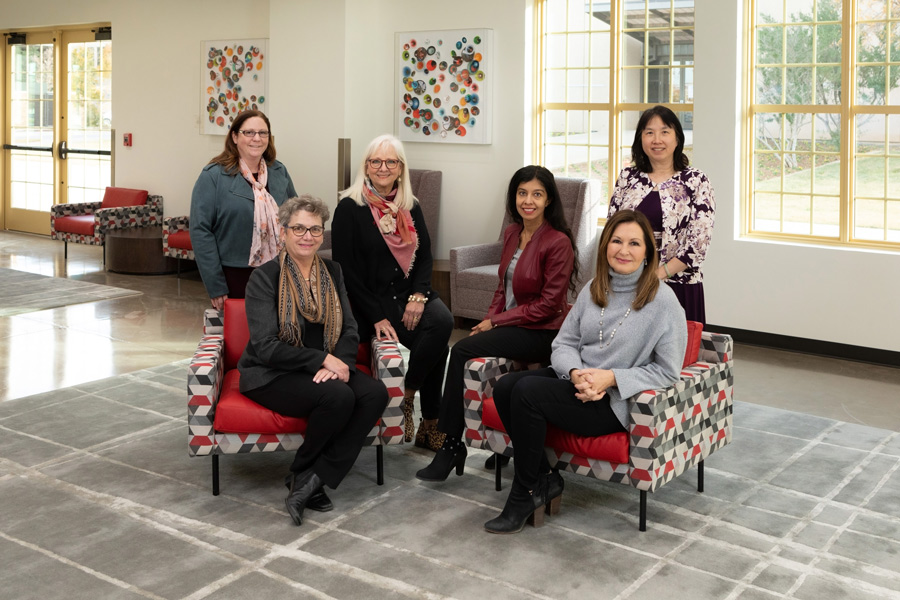
Excellent Peripheral Artery Disease Treatment
New Center established for debilitating vascular condition
To advance treatment for this potentially life-threatening condition that affects more than 200 million people across the globe, TTUHSC established the School of Medicine Center of Excellence in Peripheral Artery Disease.
Why establish a center for pad?
Current data shows patients with CLI — a condition that causes painful ulcers to form on the legs that can become infected and lead to amputation — have a 20% mortality rate and limb loss rate after one year. The mortality rate for those who undergo amputation increases by 48% at one year and 71% at three years.
Team Effort
Various practitioners, including interventional and imaging cardiologists, vascular surgeons, wound care specialists and podiatrists, will collaborate with medical specialists who study risk factors and co-morbidities. This team will also work with physicians who may encounter hospitalized PAD patients.
impact
One innovative technique to address PAD is the DETOUR procedure, featured in the Winter 2021 issue of Pulse. Ansari performed the procedure, a first for TTUHSC and in Texas.
 School of Medicine
School of MedicineFuture of Health Care Delivery
Weitz looked to the sky for a solution. Drones, unmanned aerial vehicles, might not have helped the laboring girl, but because they can fly above rutted, unpaved roads, they could deliver much-needed medications, vaccines and other supplies to remote villages. In Sierra Leone, for instance, where maternal mortality rates are soaring, drones could deliver blood to women experiencing postpartum hemorrhaging as well as drugs to stop the bleeding.
Weitz is passionate about broadening access to health care, whether in African villages or remote towns in the United States. In West Texas alone, she noted, some 450 rural communities are “pharmacy deserts,” meaning they lack nearby pharmacies. Drones, she reasons, could address the problem.
As a business venture, Weitz founded DronesRx. The startup company proposes to use drones to deliver medications, supplies and telehealth opportunities to communities in northwest Texas, New Mexico and Oklahoma.

Drones in health care
 School of Health Professions
School of Health ProfessionsCollaboration with Community Bridges Gap in Mental Health Care
When Moses began working at TTUHSC in 2008, she was the only clinician in the medical school’s Department of Family and Community Medicine. “I needed help, but more importantly, I needed help from providers who would stay in the community,” said Moses, a licensed psychologist and director of behavioral health for TTUHSC at the Permian Basin.
The community wanted this, too, as they understood the mental health provider shortage’s impact and were willing to partner with Moses through funding and resources support.
 School of Health Professions
School of Health ProfessionsSkating Her Way to a PA


Colorado Springs Orthopaedic Group

 School of Nursing
School of NursingTop 10 Trends


Registered Nurse Specializations Increase


The Nurse Entrepreneur
 Graduate School of Biomedical Sciences
Graduate School of Biomedical SciencesThe One with the 411
Ina Urbatsch, PhD, is a professor in the Department of Cell Biology and Biochemistry, and a highly funded researcher. But, it’s her love for students that makes this beloved professor the recent recipient of the Dean’s Outstanding Research and Student Mentor award.
She’s counseled troubled students, gone above and beyond to help new students acclimate to Lubbock, Texas — which is a place she never dreamed of living in as she’s originally from Germany — and even works overtime to ensure students have masks that fit properly. “I’ve done extensive research into the best masks for safety and fit, so students should benefit from the work I’ve already put in to the search.”
Urbatsch loves students, and it shows within five minutes of talking to her. “I just want to connect,” she adds. “Students need connection.”
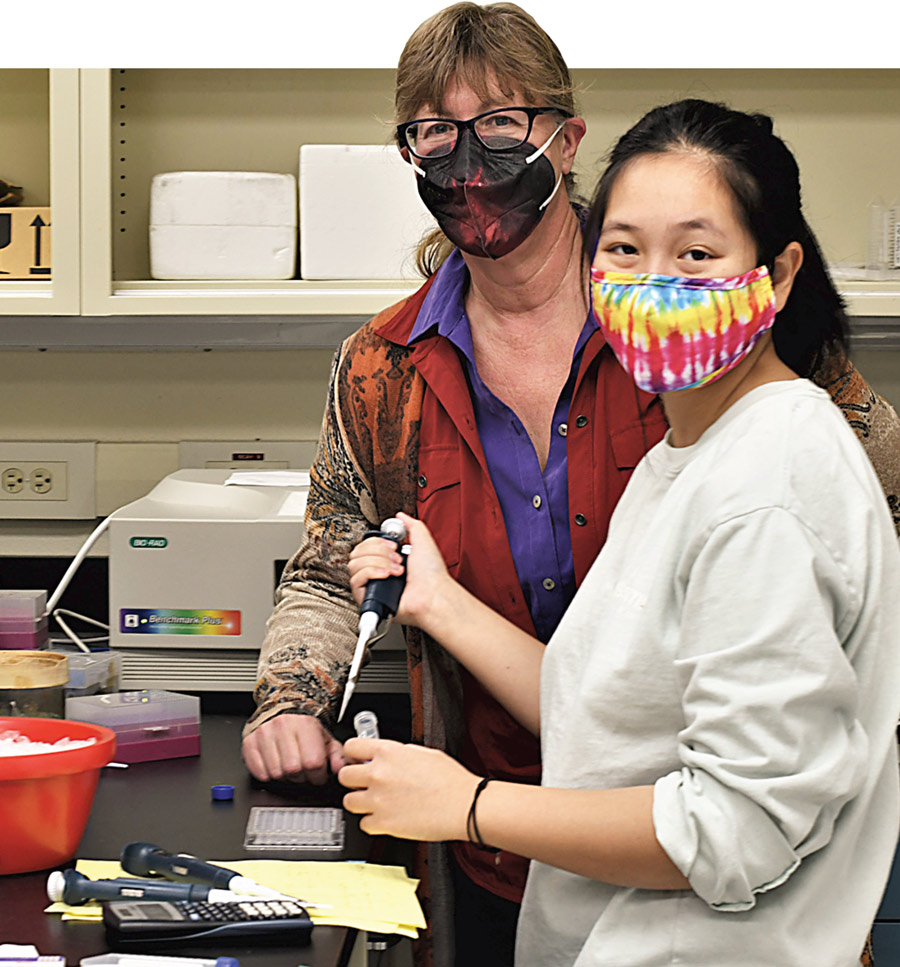
Gist of Population Health
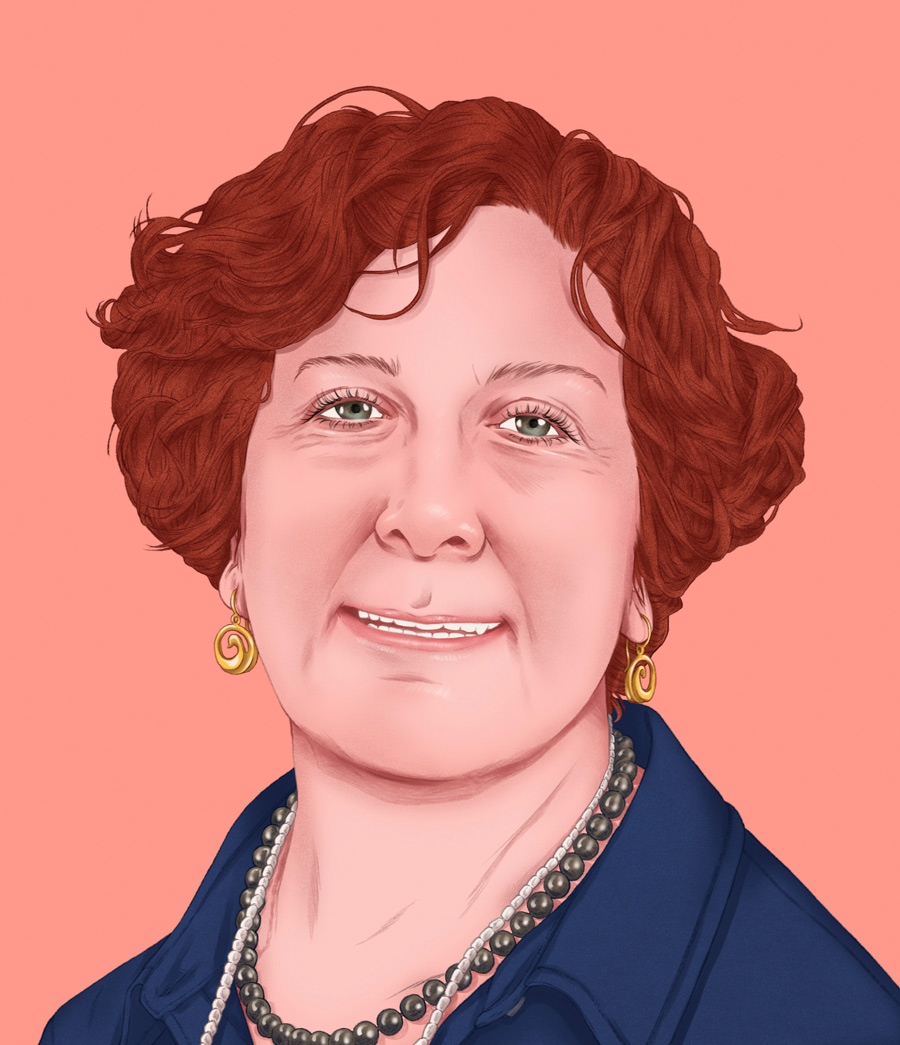
Associate Dean
Lubbock, Texas
What is population health?
Byrd: It is the study of large populations and takes the view that multiple aspects influence one’s health. For example, a person’s health is influenced by social factors (education/income), biology/genetics, environmental factors (where you live, etc.), and behaviors (exercise, eating, smoking, drinking, etc.).
Is policy development involved?
Byrd: Population health policy is why we have clean drinking water and laws against smoking indoors. We also are looking to address inconsistencies in health care across different people groups and identify policies needed to improve health care access across the board.
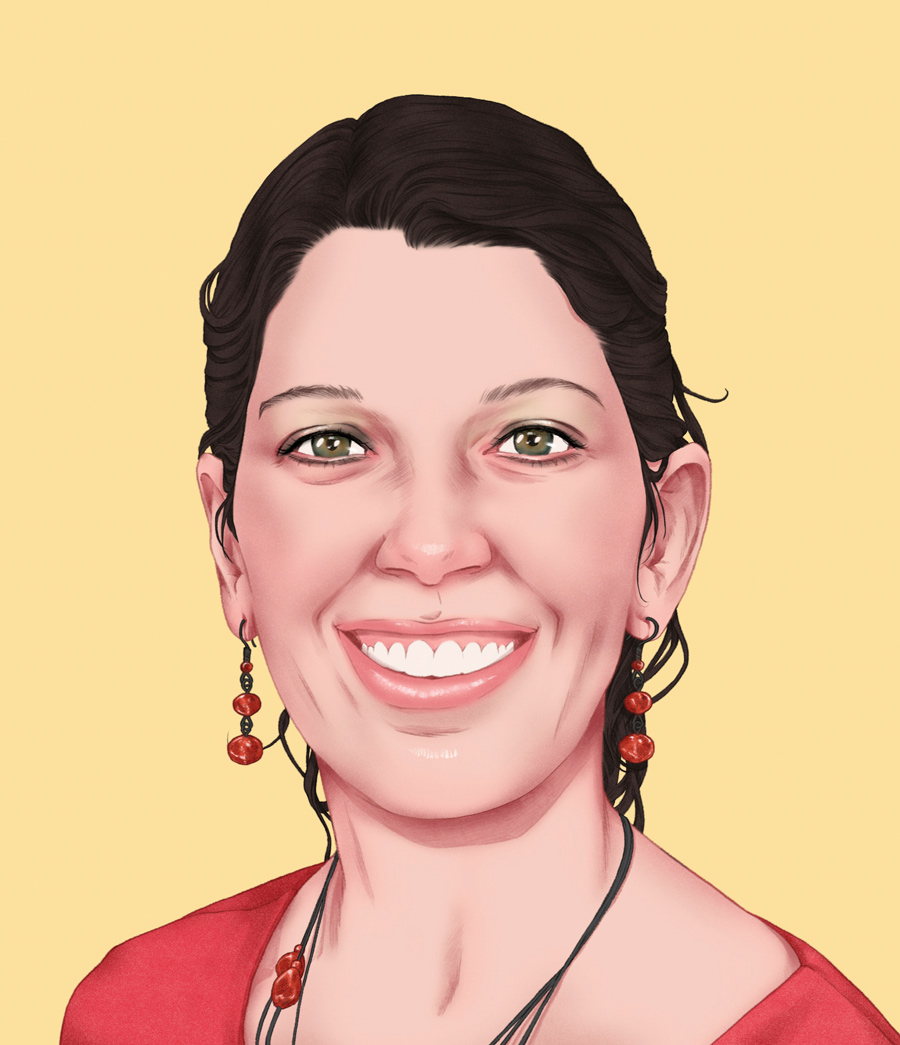
Associatie Dean
Abilene, Texas
Does this discipline bridge a gap in health care?
ST. John: Population health allows clinicians and researchers to improve treatment and care of specific groups through promoting better patient outcomes and lowering costs. For example, there are several studies in progress studying the impact of COVID-19 on patients.
What is the research focus?
ST. John: Population health research focuses on the health outcomes of particular groups. For example, workforce population or college students or shared characteristics, such as breast cancer survivors, football players, ethnicity/race, etc. Researchers look at how determinants interact across these groups.
 Jerry H. Hodge School of Pharmacy
Jerry H. Hodge School of PharmacyNovel Approach
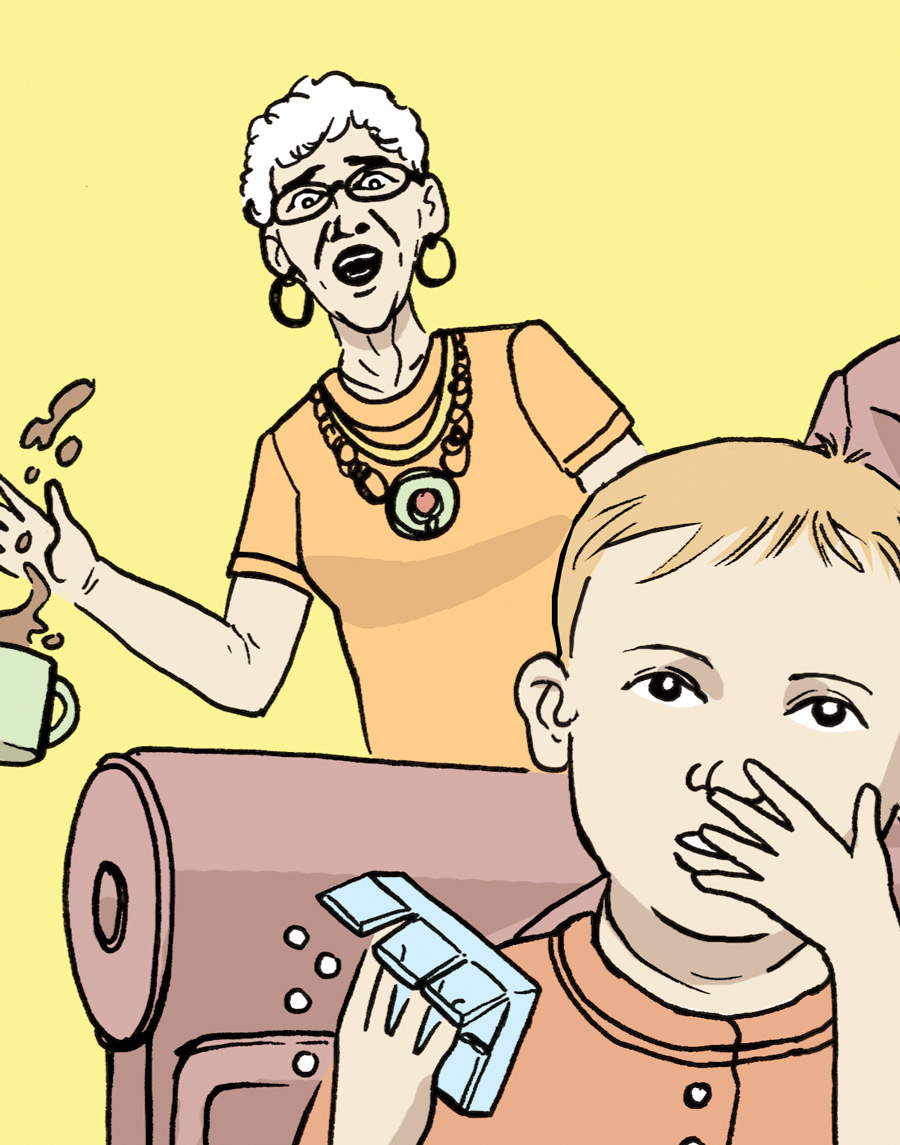
Dance Lesson
Independent pharmacy owner/operator provides hands-on student experience
Opportunity to Give Back
a Distinctive Experience
Hands-On From Day One
Teach the Business
The Students Teach Me, Too
Nursing Supervisor, TTUHSC Larry Combest Community Health and Wellness Center
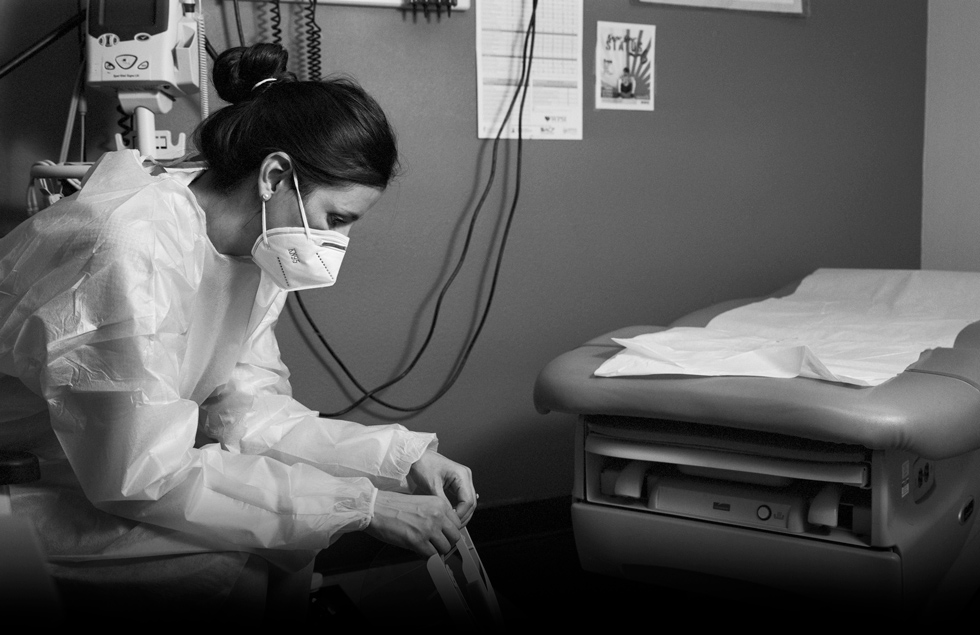
Nursing Supervisor, TTUHSC Larry Combest Community Health and Wellness Center
The Humans Behind the Heroes

overed in layers upon layers of personal protective equipment, Ebtesam Islam, MD, PhD, FCCP, (Resident ’16, ’13; Medicine ’09; Biomedical Sciences ‘05) spends five hours stabilizing one patient. Sweat drips down her back as she does chest compressions, shouting orders so she can be heard through her mask. Up to six people in the room giving medications, stabilizing the airway, starting intravenous fluids, etc. — it’s stressful, but she remains steadfast in the work. “It’s somebody’s life,” she adds. “And you want so bad to save them.”
As a pulmonary and critical care physician in the medical intensive care unit at University Medical Center in Lubbock, Texas, Islam treats the sickest of the sick. But previous patients have not compared to the challenge of caring for a COVID-19 patient. Every hour of every 12-hour shift, she’s pushed to the very limits of her abilities and stamina.

Family Prescription

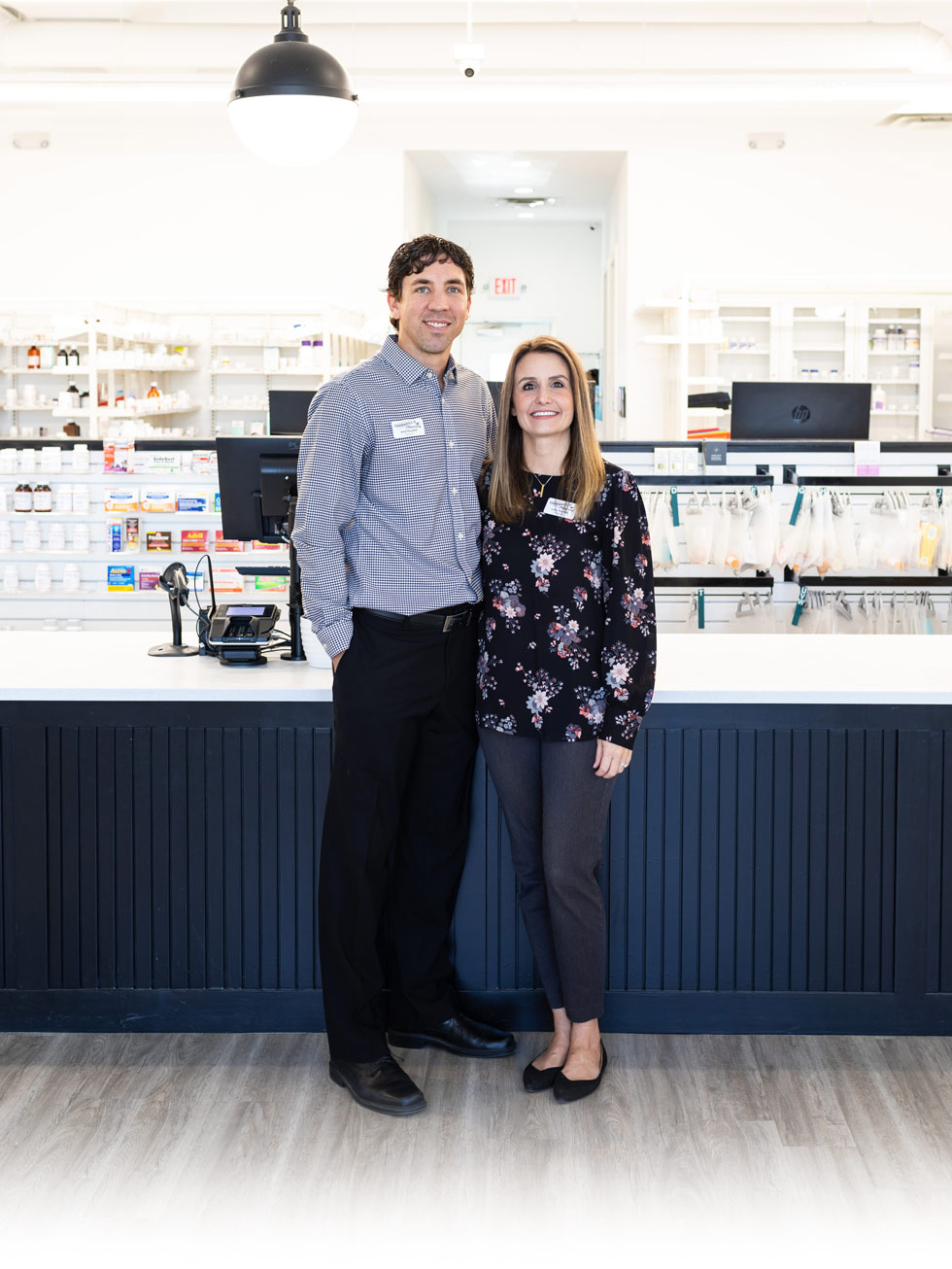

Family Prescription

acey Thornhill, PharmD, (Pharmacy ’10) still finds it difficult to talk about April 2020. She and her husband, Jared Thornhill, PharmD, (Pharmacy ’10) had finally embarked upon Lacey’s lifelong dream of opening her own pharmacy. They gave up the security of her job. They gave up the insurance benefits that came with said job for them and their three young daughters. They gave up the comfort that came with those safety nets. They could not afford to fail.

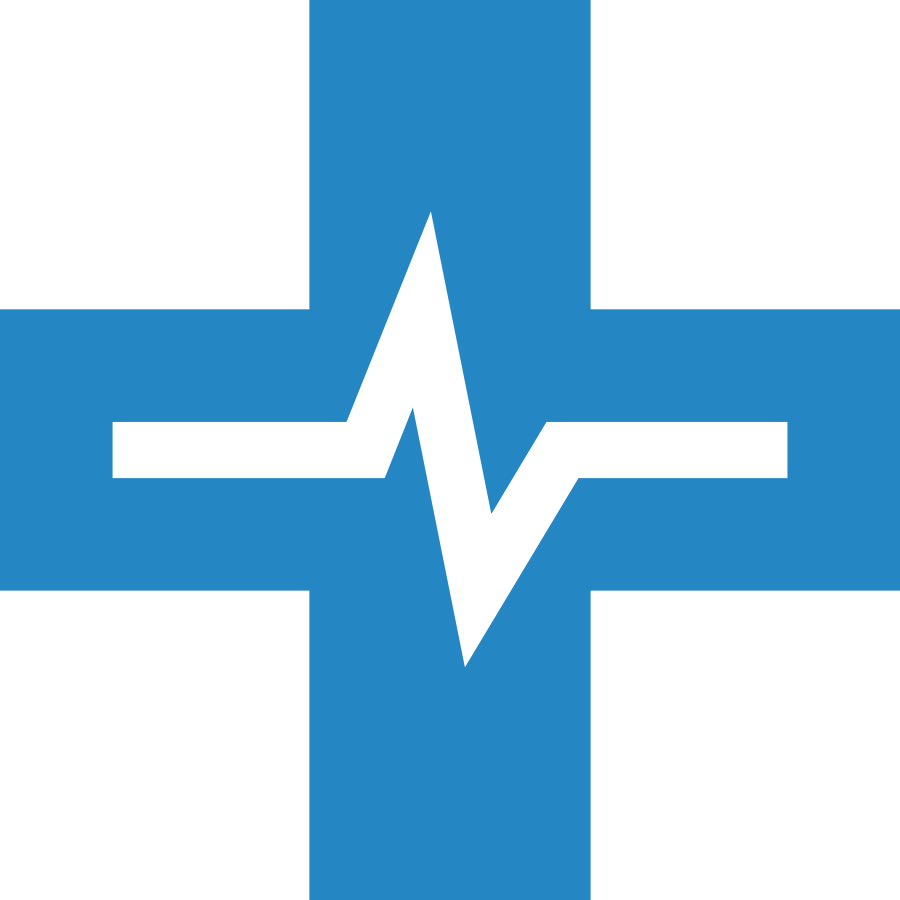






Connecting with TTUHSC Alumni Rounds
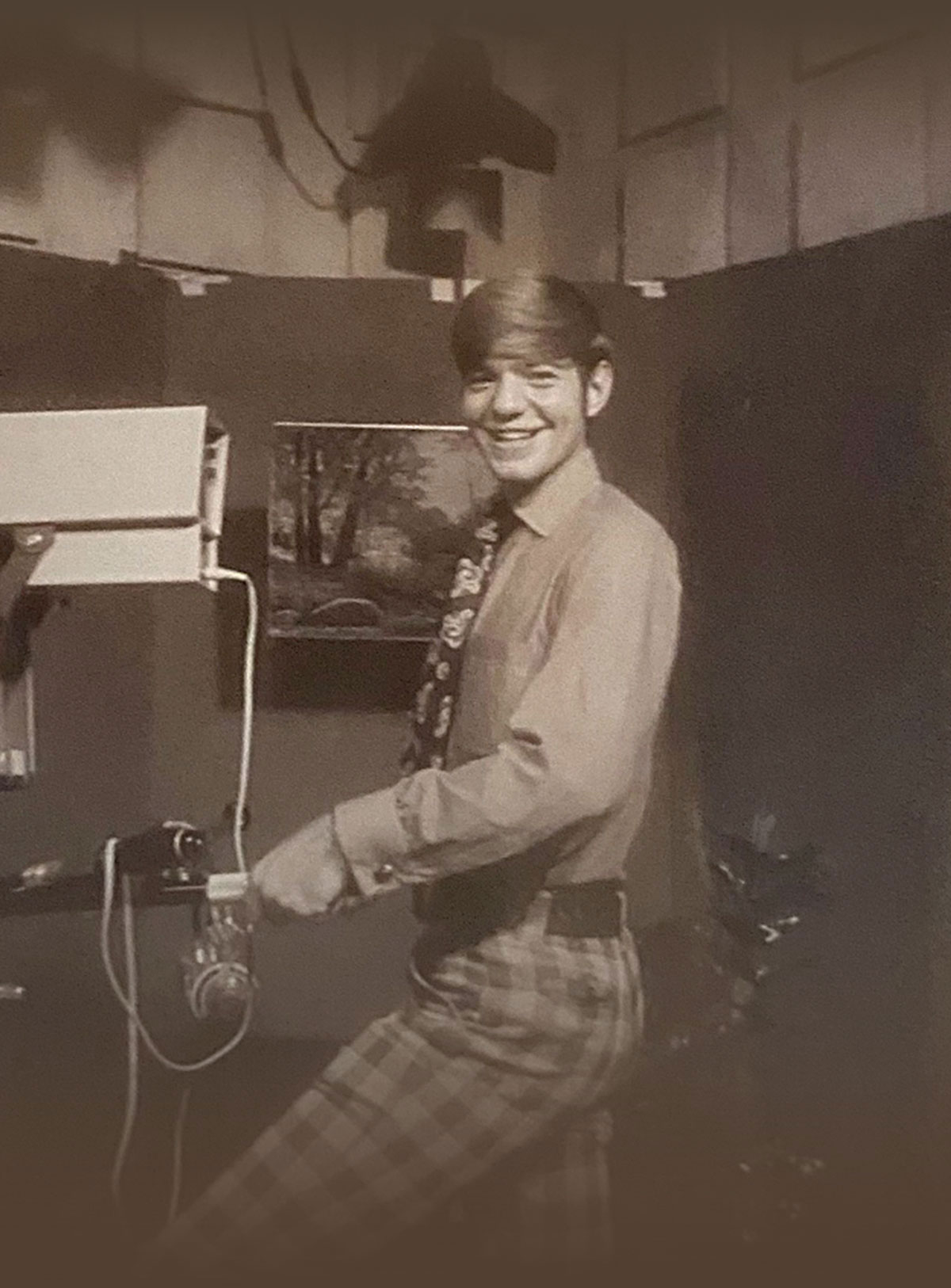
In the Beginning, There Was Innovation
In 1974, the new School of Medicine built a television studio — along with classrooms, clinics and laboratories. “The faculty didn’t want to just be talking heads at the front of the classroom,” said Robert Rees, the school’s first coordinator of television and cinematography and first director of the studio. “Students would watch procedural situations on the television and could check out videos at the library.”
Since inception, TTUHSC’s foundation was built on innovation. “At the time, we didn’t know of any other medical schools enhancing curriculum in this way,” Rees added. “It was very ambitious, and I’m very proud of the work we accomplished in the early years.”
 SERVING THE SERVICE
SERVING THE SERVICEHealth Care Comes Full Circle
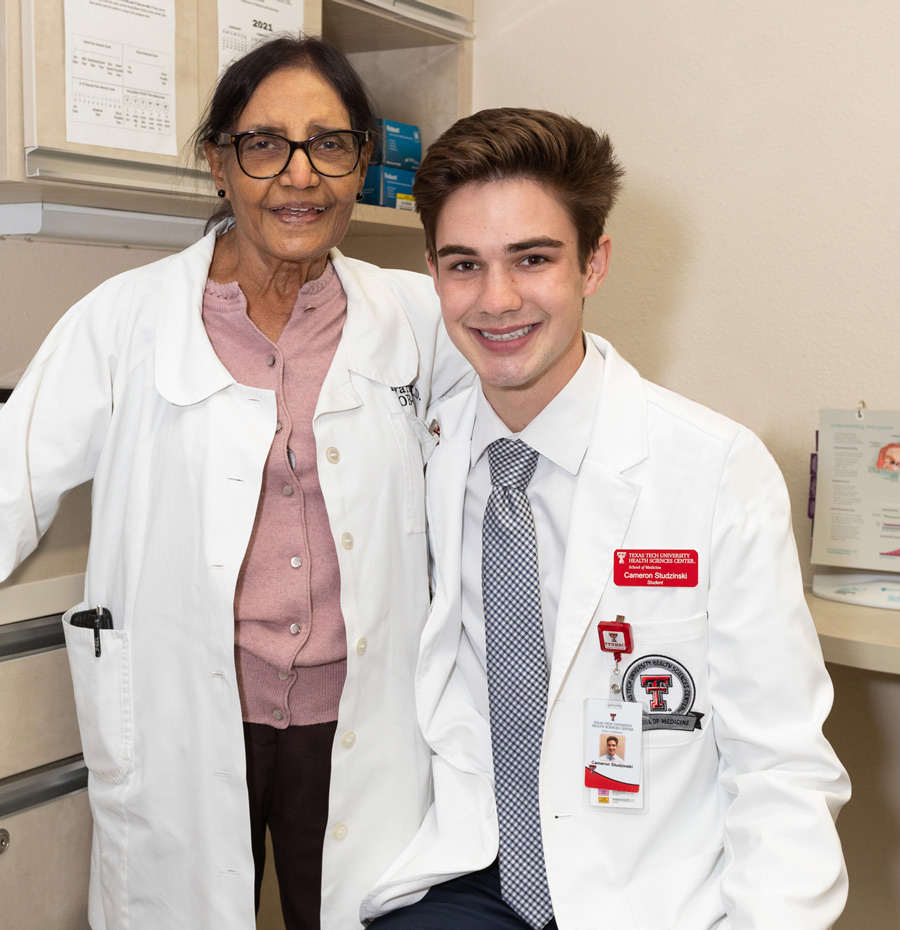
in 1999.
Ceremonial Numbers
 Research Corner
Research CornerFrom Patient to Advocate
to Research Scientist
i had to be my own advocate
We were investigating my symptoms, and none of them fit the diagnoses presented to me. In 2015, my lung collapsed nine times. After the second collapse, I had surgery and a biopsy was conducted that the medical team sent to the Mayo Clinic in Scottsdale, Arizona, to one of the premier lymphangioleiomyomatosis (LAM) experts in pathology. It was confirmed I had LAM — a disease caused by abnormal growth of smooth muscle cells that leads to holes or cysts forming in the lungs.
We’re pioneering new science
I have sporadic LAM, so naturally, that’s my curiosity. For my dissertation, I also plan to study different hormonal pathways. We know estrogen is a driving factor, but I suspect that there are other hormones.
It’s Not just about my own outcomes
It is the most empowering thing as a patient to participate in research trials and promote a better life, better understanding or better treatments for those who come after us. As a researcher, I need to promote patient advocacy and tailor treatments in line with their life goals.
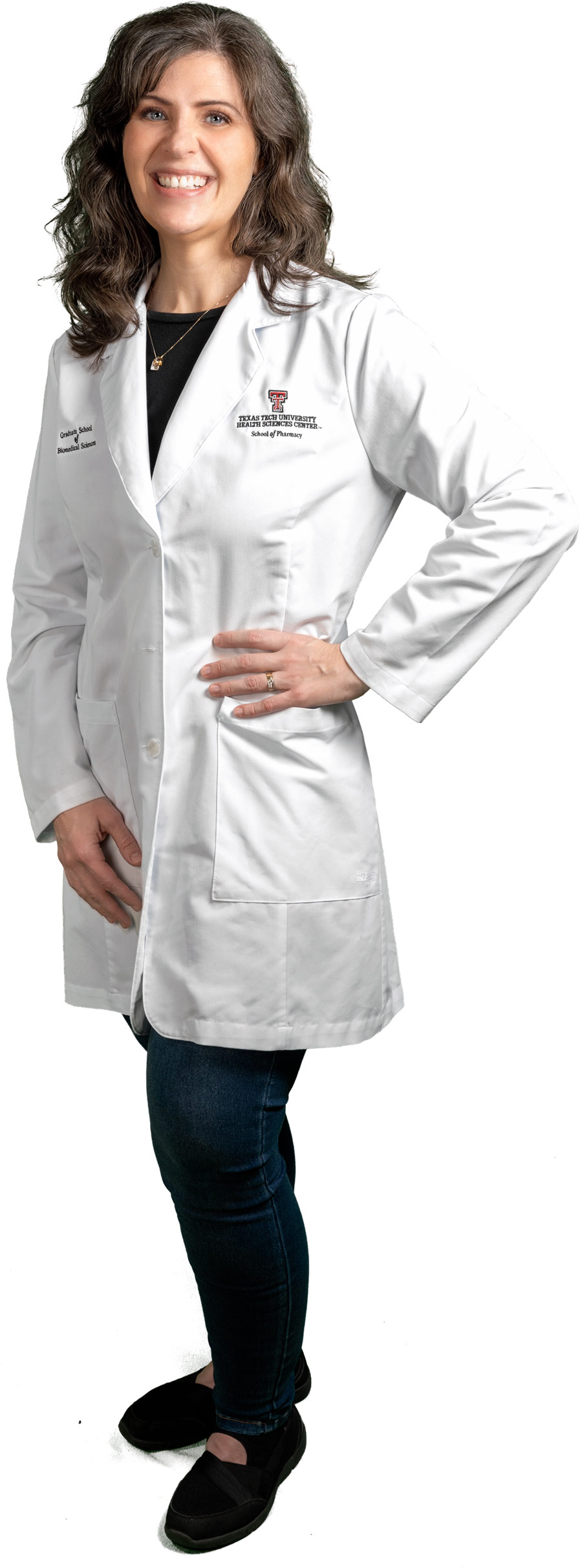
 HEALTH SCENE
HEALTH SCENEActs of Service
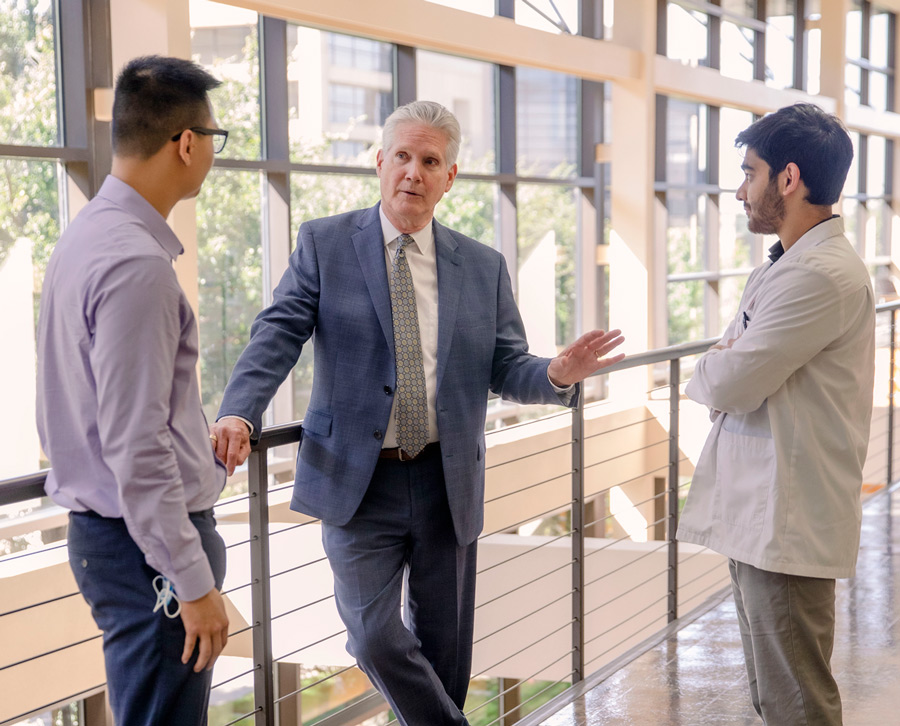
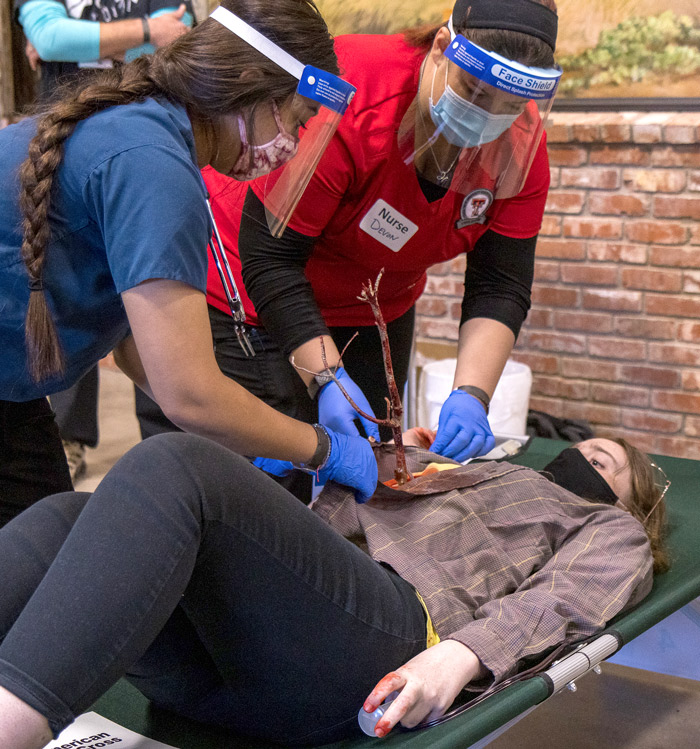
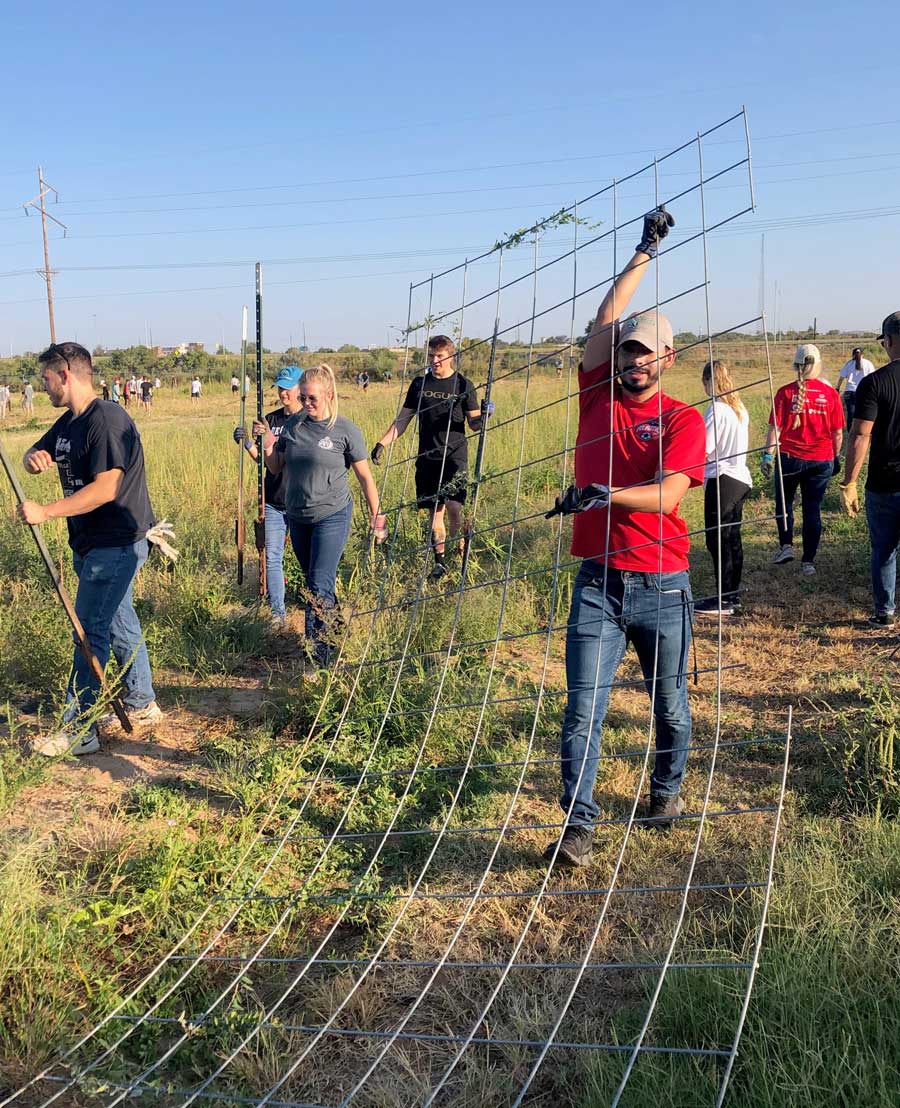
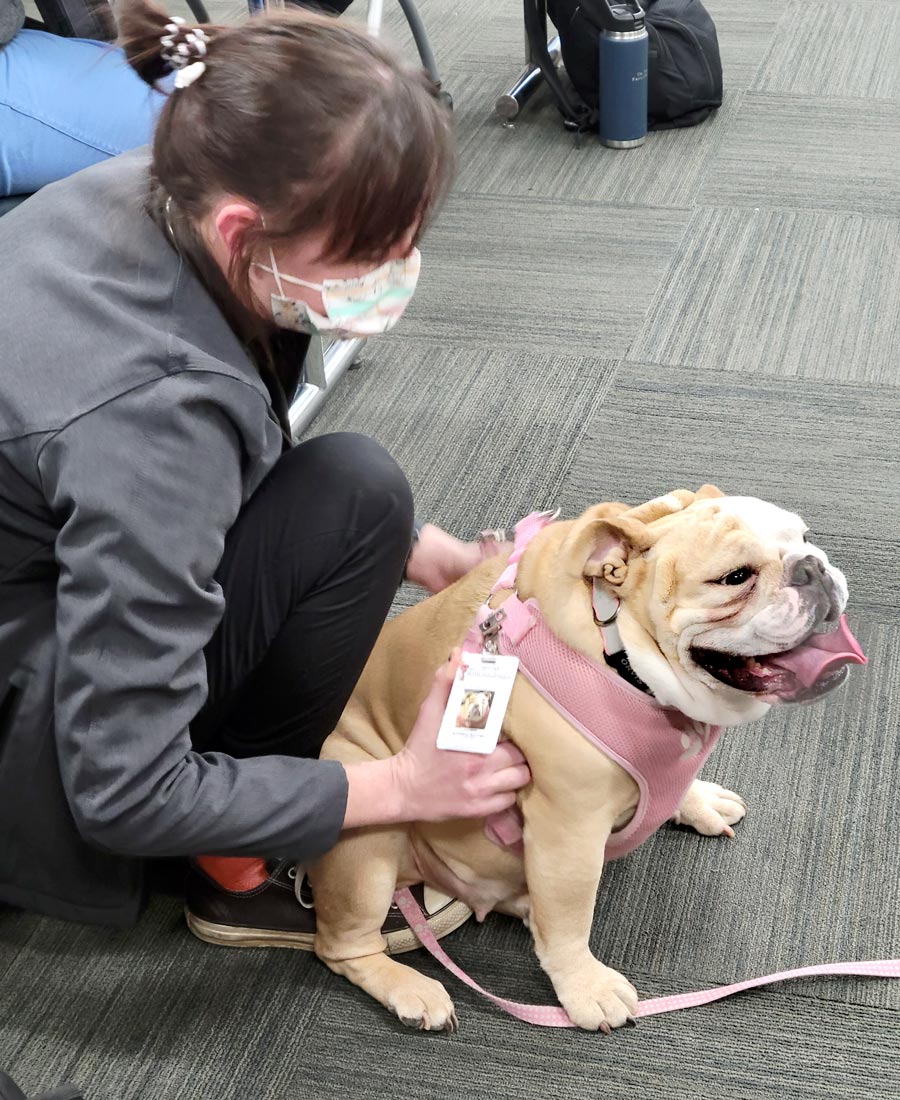
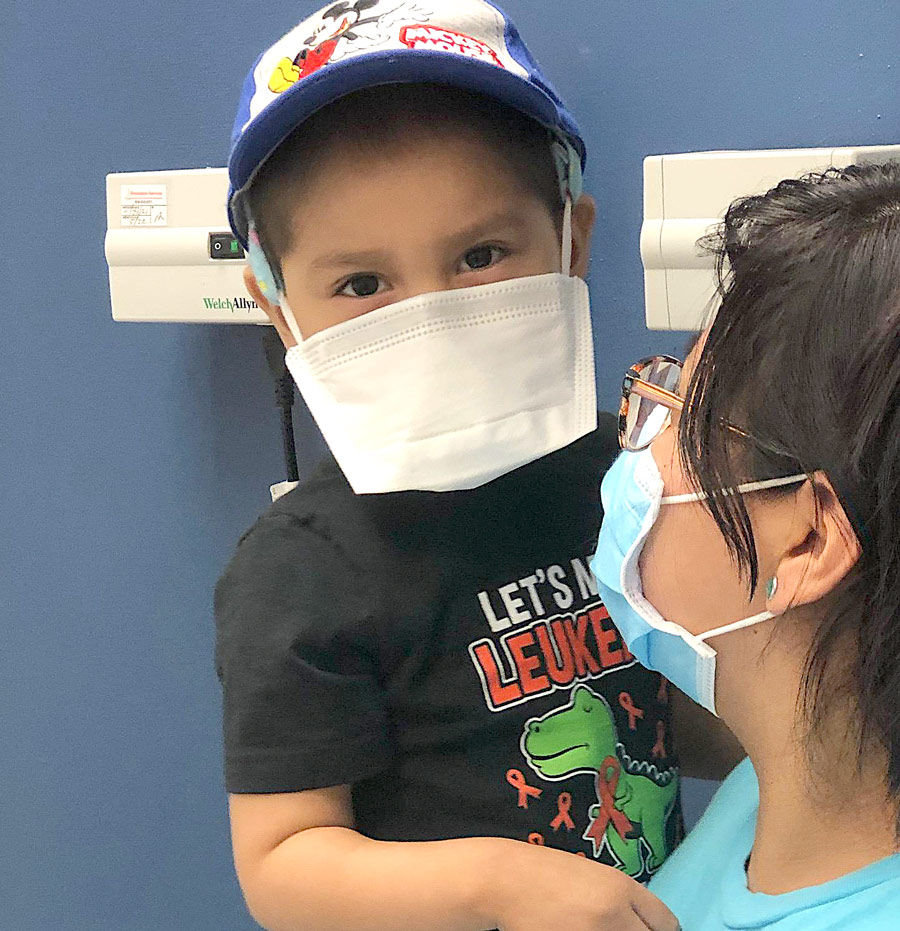
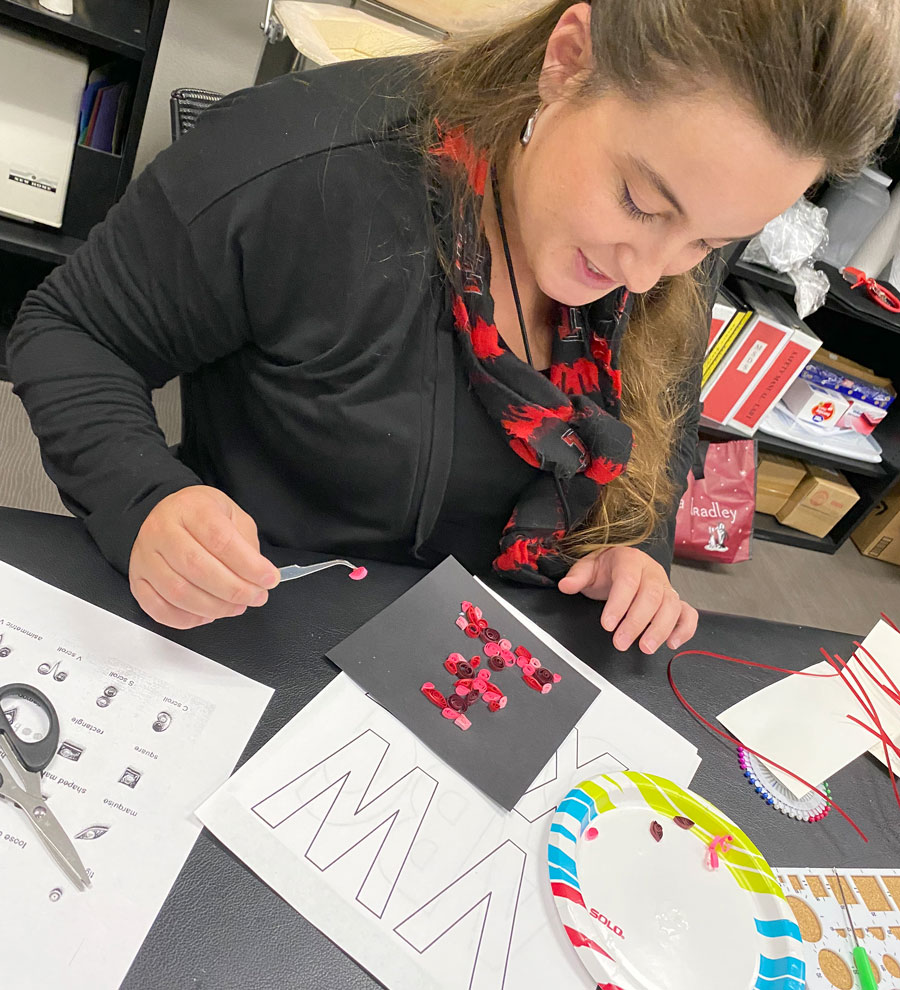
2| TTUHSC in Amarillo hosts a bone marrow registry drive to benefit children like Logan.
3| TTUHSC Doctor of Physical Therapy students assist the South Plains Food Bank in cleaning up the organization’s property.
4| London, a service dog and official employee of TTUHSC, visits students as they prepare for exams.
5| Logan Winkleman, PhD, LPC, program director in the Department of Clinical Counseling and Mental Health, leads a quilling class for students to relieve stress.

Update Catching Up With TTUHSC Alumni & Friends
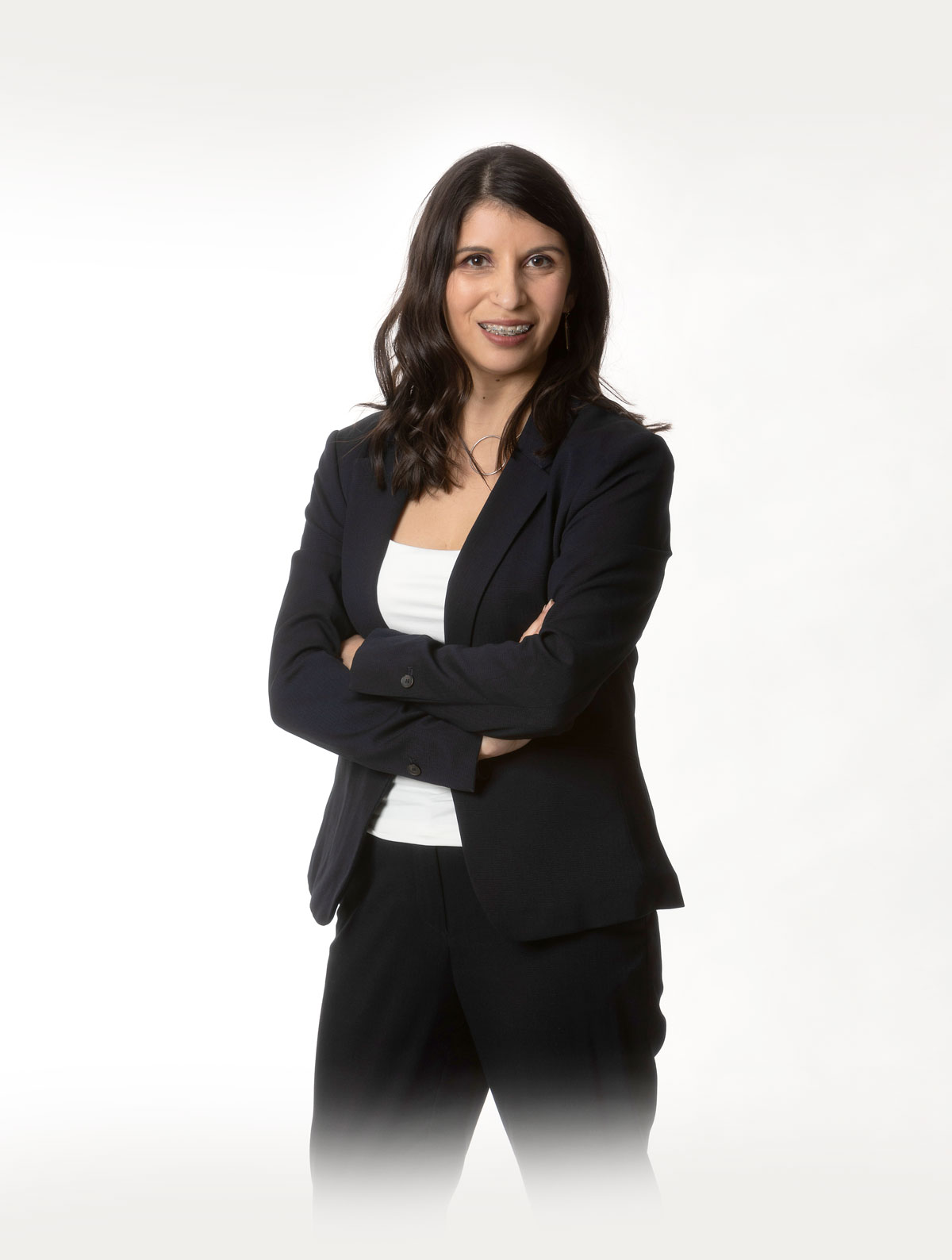
Tiffany Torres, MS
Biomedical Sciences Graduate: 2018
Health Professions Graduate: 2014, 2013
data driven
When Tiffany Torres, MS, started studying epidemiology, she had her sights set on foodborne and waterborne illnesses. However, after landing her first job in public health, Torres found salmonella and E. coli too predictable.
“I remember doing foodborne investigations and thinking, ‘This is very dry and clear-cut,’” she said. “It came from that chicken or that potato salad; but respiratory and hospital infections are so broad — they can go in any direction.”
COVID-19 has provided the kind of challenge Torres sought. Seven months into her role as an epidemiologist for the city of Lubbock, she was alerted to a new novel coronavirus identified in China. Almost immediately, her office joined weekly calls with the state health department and met internally to develop a plan should the virus reach Texas.
Now, Torres is responsible for producing daily case counts for the public. Most recently, she has been analyzing raw data comparing last year’s COVID-19 case counts with current data. That data helps assess what populations are most affected and how to target the response. Her graphs and datasets offer a big-picture view of the virus in Lubbock and help the city determine the next steps to keep its residents safe. — Kim Catley
 News & Notes
News & Notes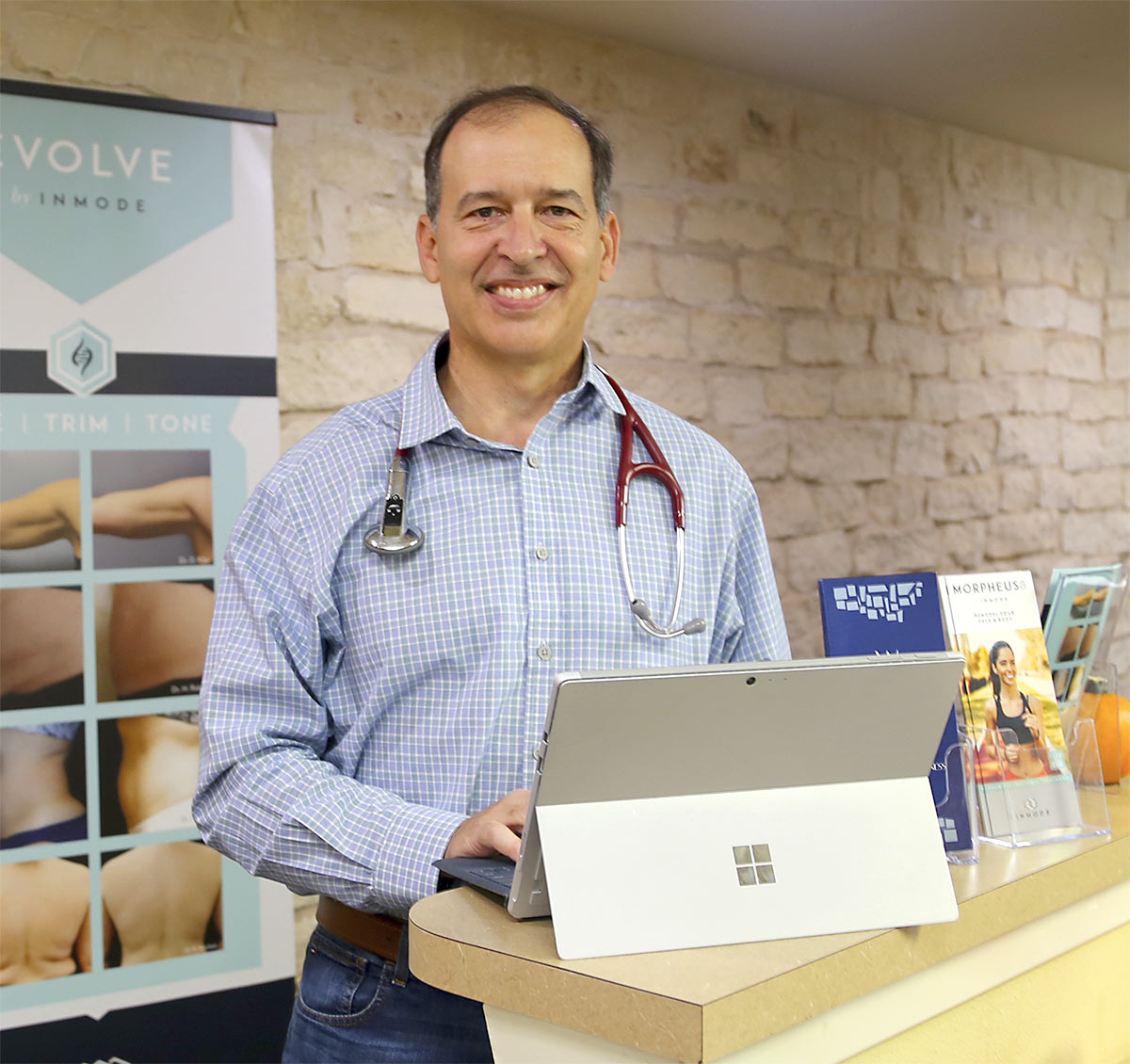
Karl M. Trippe, MD
Medicine Graduate: 1996
independent streak
As owner and sole physician of Waco Primary Care, Karl M. Trippe, MD, will occasionally ask another physician to cover for him, but otherwise, he says, “I’ve had my phone on for 10 years.” He even answered a call right before walking his daughter down the aisle at her wedding – although, he he did say he’d have to call them back.
Trippe recognizes that the always-on-call lifestyle isn’t for everyone, but he values the autonomy — the ability to take as much time with a patient as he wants, for instance, and to make referrals without in-house corporate pressure.
The result, he says, is a strong personal relationship with his patients. “I don’t think I’ve bought a carton of eggs in I don’t know how long,” he says with a chuckle.
Trippe does hope to add a partner in the next year, with a goal of someone taking over the practice in 15 or 20 years. He would like nothing better, he says, than to identify a like-minded physician to continue the independent path he’s forged. — Tina Hay
 News & Notes
News & Notes
Graduate School of Biomedical Sciences
Matthew Grisham, PhD, (’82)
will retire August 31, 2022, after serving since 2012 as chair of the TTUHSC Department of Immunology and Molecular Microbiology.

Jerry H. Hodge School of Pharmacy
Levi Campbell, PharmD, (’16)
was named the 2021 TTUHSC Faculty Preceptor of the Year for the Amarillo campus.
Brent Dance, PharmD, (’06)
was named the 2021 TTUHSC Amarillo Adjunct Preceptor of the Year.
Lee Ann Hampton, PharmD, (’02)
was named the 2021 Texas Pharmacy Association Texas Pharmacist of the Year.
Mary Klein, PharmD, (’07)
received the 2021 Texas Pharmacy Association Distinguished Service Award.
Robert Martinez, second-year student,
was one of only 40 Texas pharmacy school students selected for Houston Methodist Hospital’s Power Week, a student observation program.
 News & Notes
News & NotesKatherine ‘Katie’ Carden, AT
Health Professions Graduate: 2017
back in the (TTU) game
Katie Carden, AT, had two requirements for her graduate program in athletic training: a top notch program and solid football team. TTUHSC, sister university to Texas Tech University (TTU) football team, was one of the few universities with a training program that fit the bill.
Carden discovered her interest in working with football athletes during an athletic training internship as an undergraduate student at the University of Massachusetts. She appreciated the team dynamic among the trainers, as well as the fast pace and variety of injuries among the athletes.
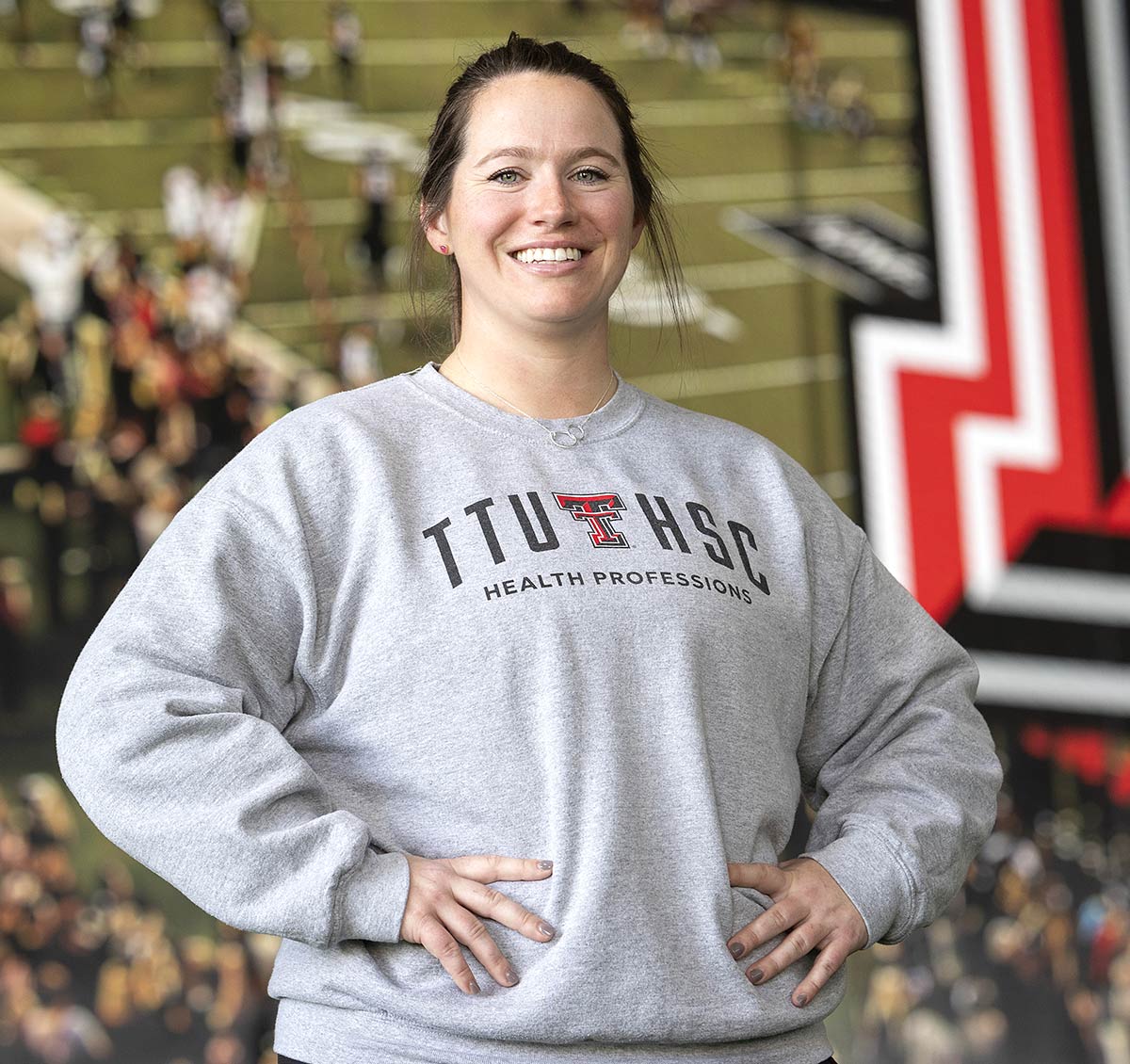
Working with the TTU football team as a graduate student provided further confirmation she was on the right track. The school’s aggressive approach to rehabilitation created a robust environment with athletes involved in preventive exercises, recovering from surgery and everything in between.
Carden recently returned to TTU as an assistant athletic trainer after finishing an internship with the San Francisco 49ers. — Kim Catley
Update News & Notes
News & Notes
Timothy Weigle, PharmD
Pharmacy Graduate: 2010
In The Trenches As A Military Pharmacist
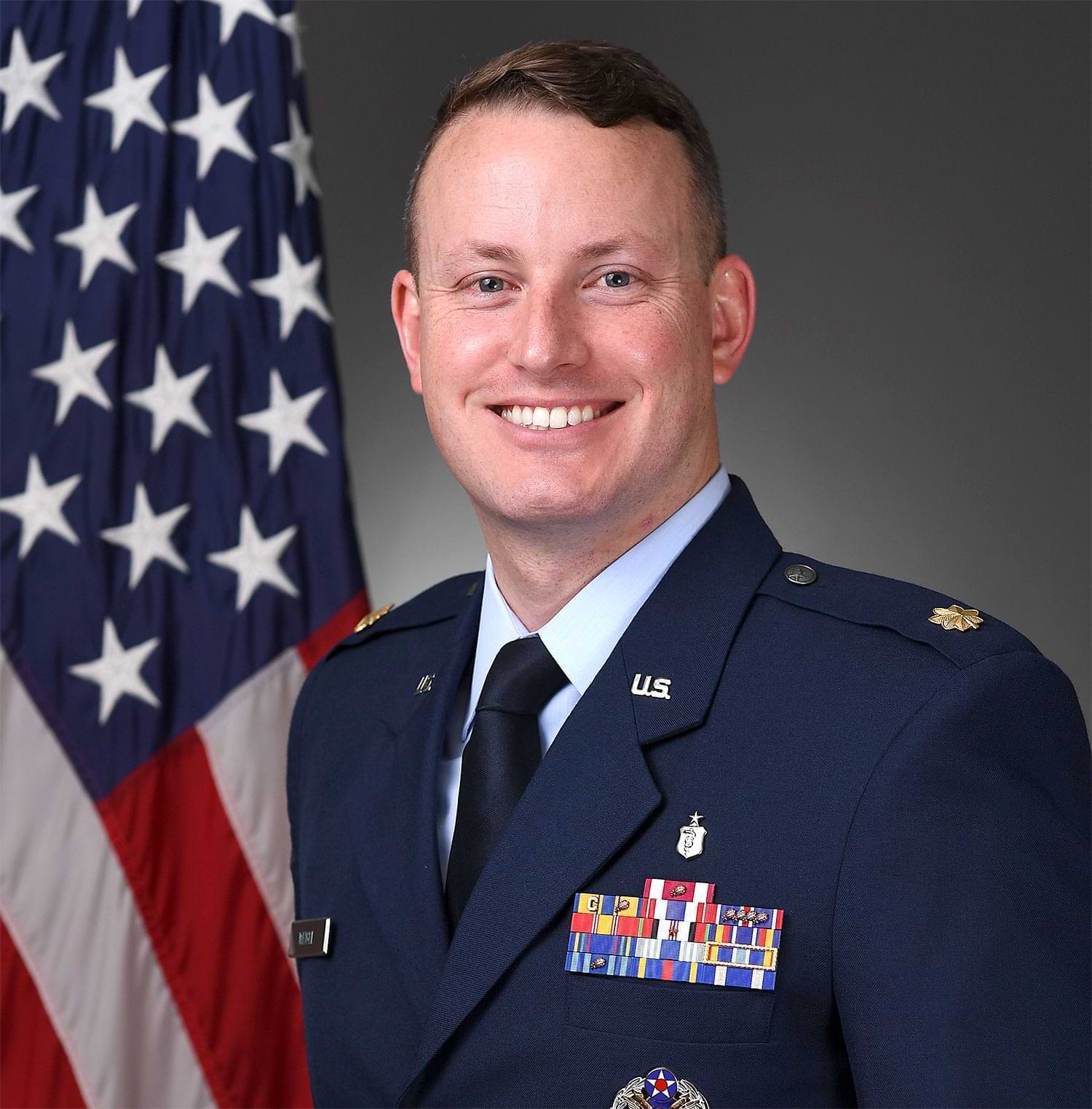
Update News & Notes | Friends We’ll Miss
News & Notes | Friends We’ll Miss
Rhonda Collins, DNP, RN, FAAN
Nursing Graduate: 2018, 1997
Communication That Flows
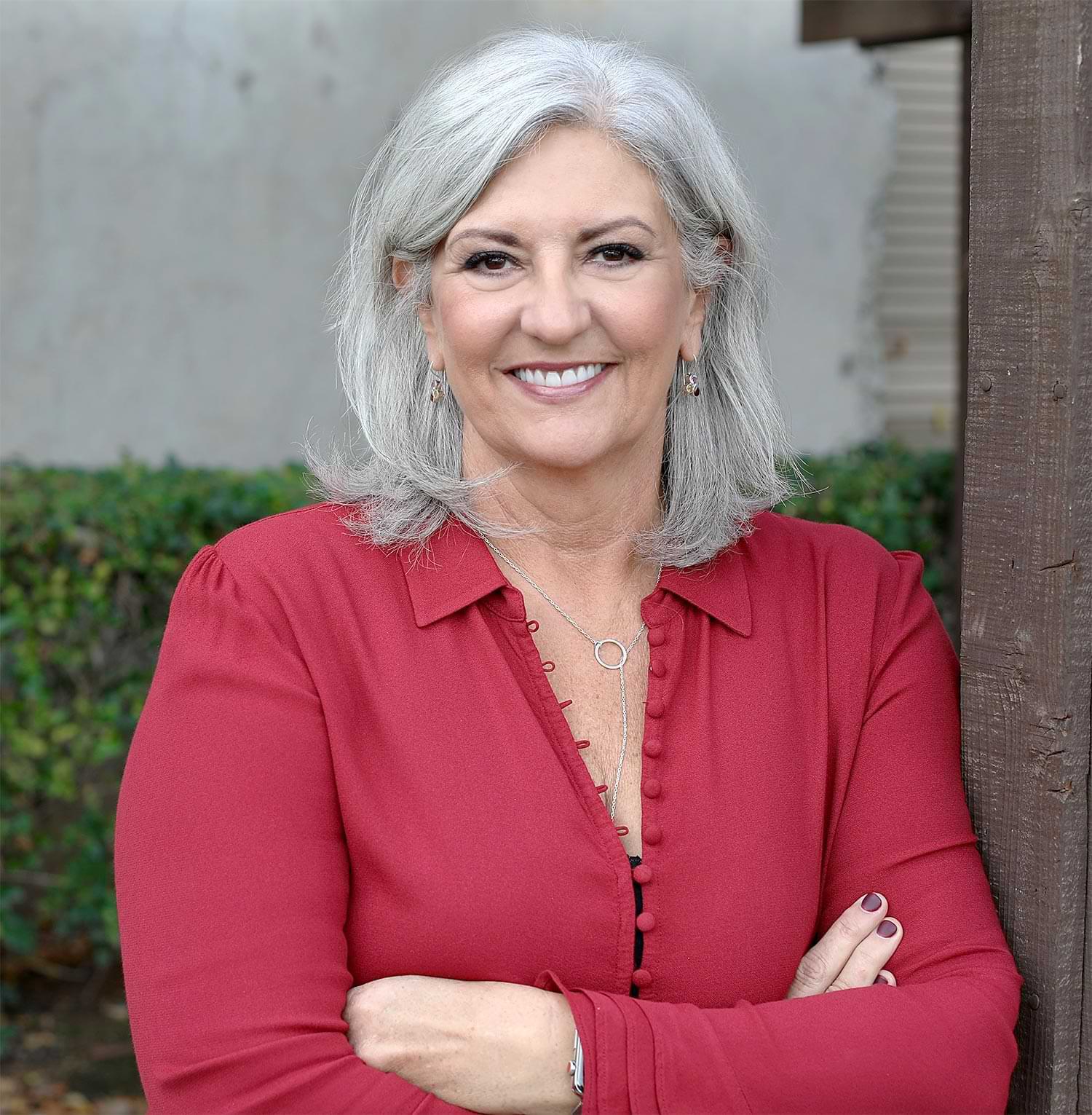
 DONOR PROFILE
DONOR PROFILE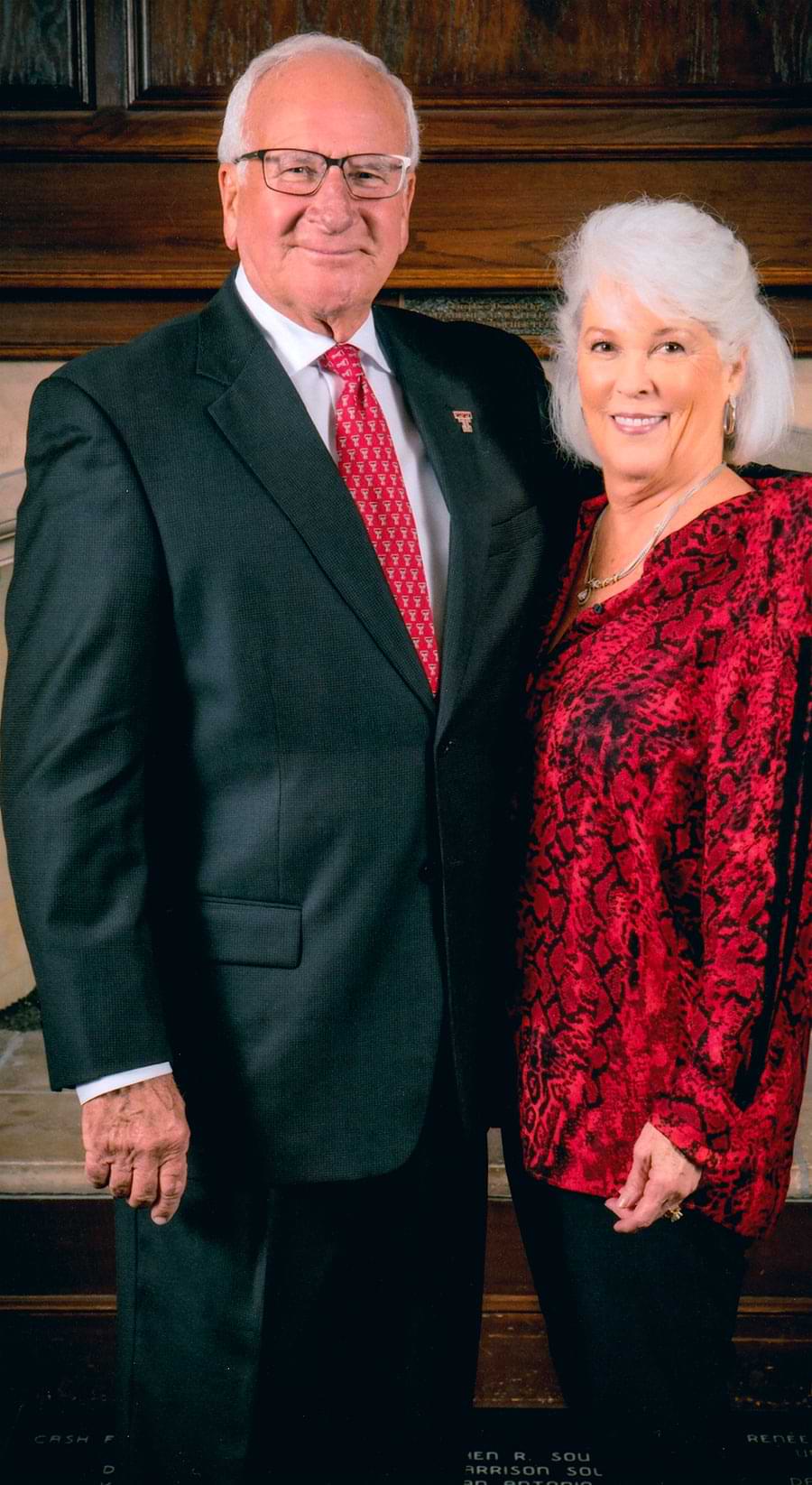
Return on Investment
Keeping Communities Healthy Gets A Professional and Personal Commitment
For almost 25 years, The United Family’s gifts have supported scholarships for pharmacy students at TTUHSC, and their generosity has most certainly come full circle. More than 80 TTUHSC graduates currently work in The United Family’s 40 Texas pharmacies. Throughout the pandemic, United Supermarkets pharmacies also have been a valued community partner for TTUHSC in health education and distribution of COVID-19 vaccines. These are just two examples of the company’s many gifts impacting the missions of TTUHSC and Texas Tech University.
“We give where we think it might have the most impact in the areas we serve,” said Taylor. He points to TTUHSC and The United Family’s congruous footprints, serving the western half of Texas across to the DFW Metroplex and into eastern New Mexico.
“You always want the best return on your investment, and we feel like we’ve gotten a huge return both on our personal investments and for United,” said Taylor. He and his wife, Jan, also give personally to the universities. “There’s no doubt that Texas Tech and the (Texas Tech University) Health Sciences Center are universally good – but more importantly, they’re good for this region and the entire state.”
Planned Gift Helps Ensure Scholarships for Future Nursing Students
For several years, Bill Tilley (TTU Business Administration ’93) and Donna Scott-Tilley, PhD, (Nursing ’97, ’91), had discussed including a charitable gift in their estate planning. Their goal was to support scholarships at their alma maters. Someday, the couple thought, we’ll make the gift official by completing the paperwork.
The Friday after Thanksgiving 2017, Bill’s heart stopped beating.
Within minutes, and with no prior warning, Bill experienced sudden cardiac death. It’s a condition caused by a malfunction of the heart’s electrical system. Without intervention, the survival rate is less than 1%.
Donna’s training through the TTUHSC School of Nursing sent her immediately into nurse mode, performing CPR on her husband until EMS arrived. Bill beat the odds after a few days in the hospital and being fitted with a medical device to correct future arrhythmias.
With a renewed urgency, the Tilleys did what they had always planned to do. Their Gift of Impact names TTUHSC School of Nursing as one of their insurance beneficiaries so nursing students, like Donna, have the opportunity to learn life-saving skills. Their gift also benefits the Texas Tech University School of Music.
Interested in making your GIFT OF IMPACT? Contact Nathan Rice, CFRE, at giftplanning@ttu.edu or 806.742.1781.
Planned Gift Helps Ensure Scholarships for Future Nursing Students
For several years, Bill Tilley (TTU Business Administration ’93) and Donna Scott-Tilley, PhD, (Nursing ’97, ’91), had discussed including a charitable gift in their estate planning. Their goal was to support scholarships at their alma maters. Someday, the couple thought, we’ll make the gift official by completing the paperwork.
The Friday after Thanksgiving 2017, Bill’s heart stopped beating.
Within minutes, and with no prior warning, Bill experienced sudden cardiac death. It’s a condition caused by a malfunction of the heart’s electrical system. Without intervention, the survival rate is less than 1%.
Donna’s training through the TTUHSC School of Nursing sent her immediately into nurse mode, performing CPR on her husband until EMS arrived. Bill beat the odds after a few days in the hospital and being fitted with a medical device to correct future arrhythmias.
With a renewed urgency, the Tilleys did what they had always planned to do. Their Gift of Impact names TTUHSC School of Nursing as one of their insurance beneficiaries so nursing students, like Donna, have the opportunity to learn life-saving skills. Their gift also benefits the Texas Tech University School of Music.
Interested in making your GIFT OF IMPACT? Contact Nathan Rice, CFRE, at giftplanning@ttu.edu or 806.742.1781.
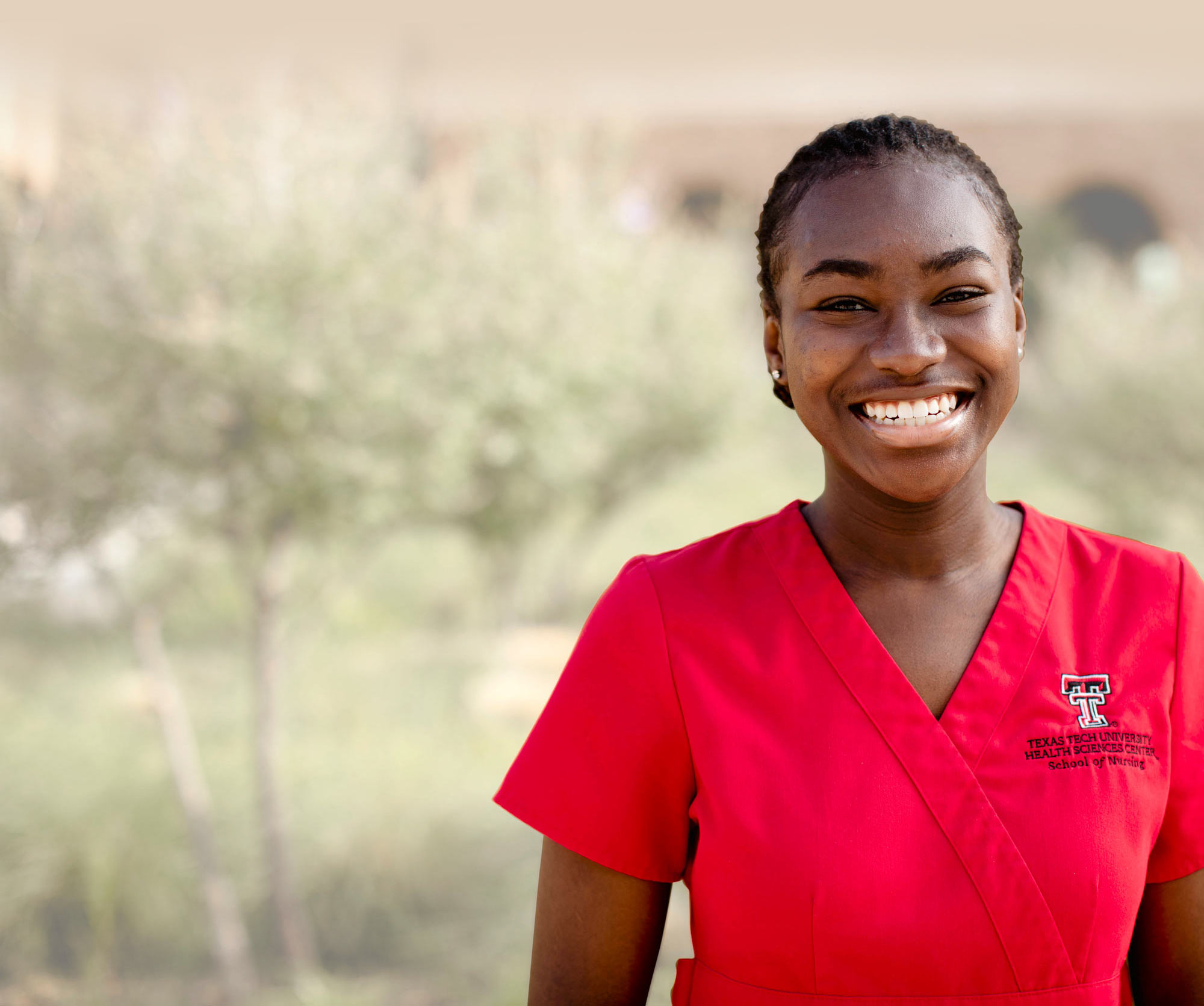


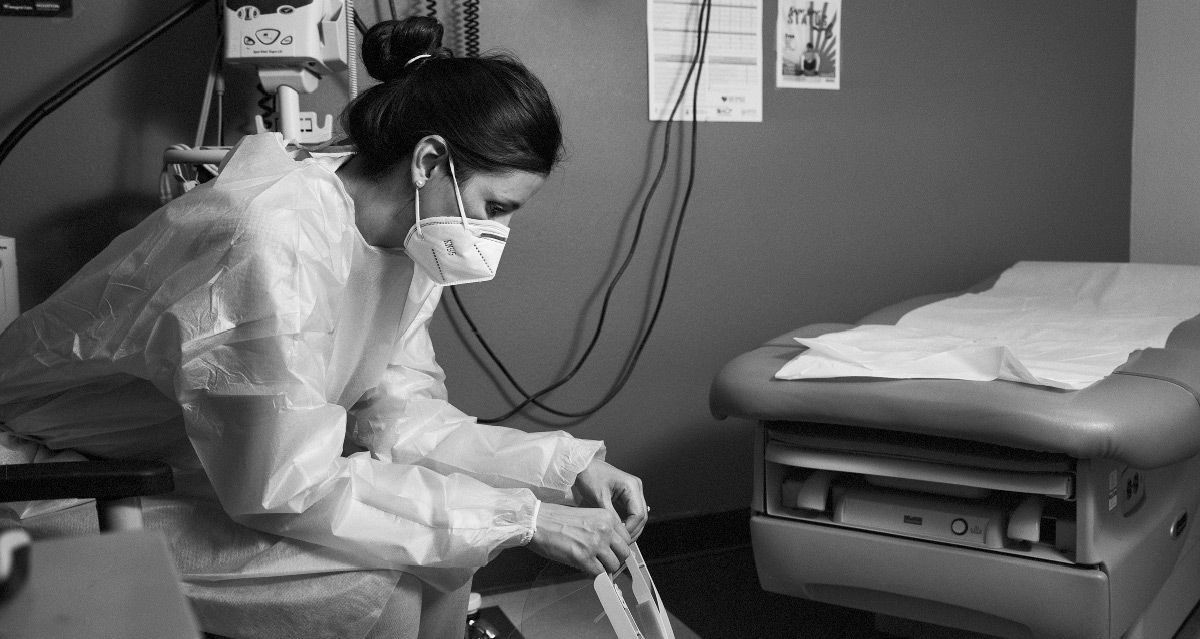
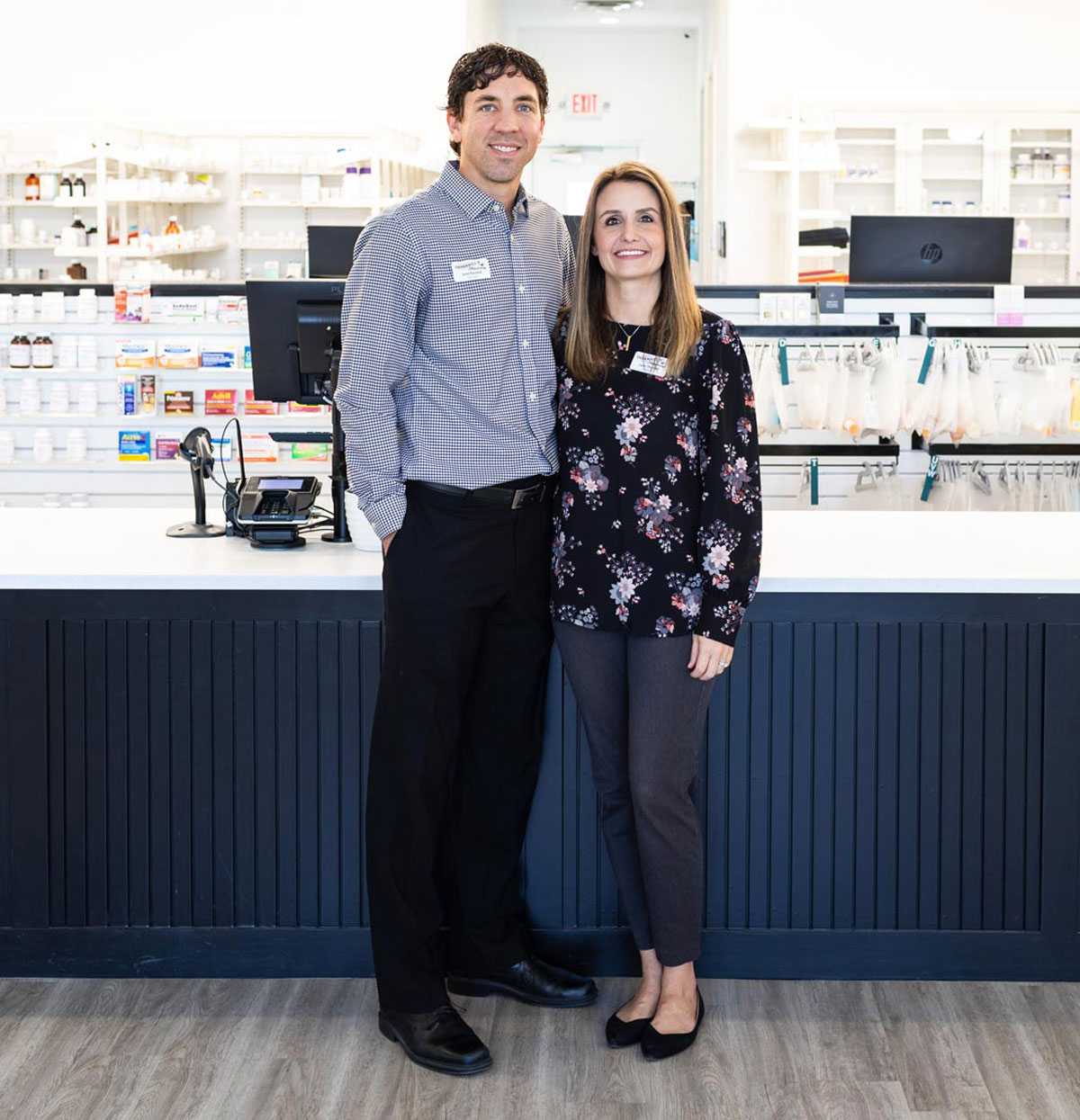
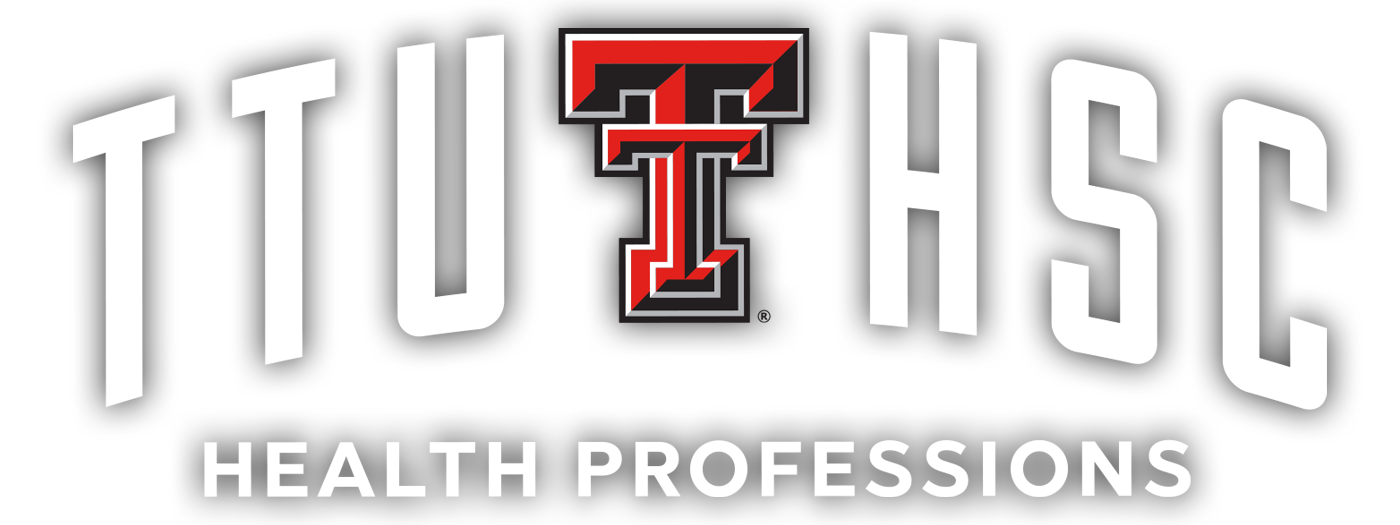
















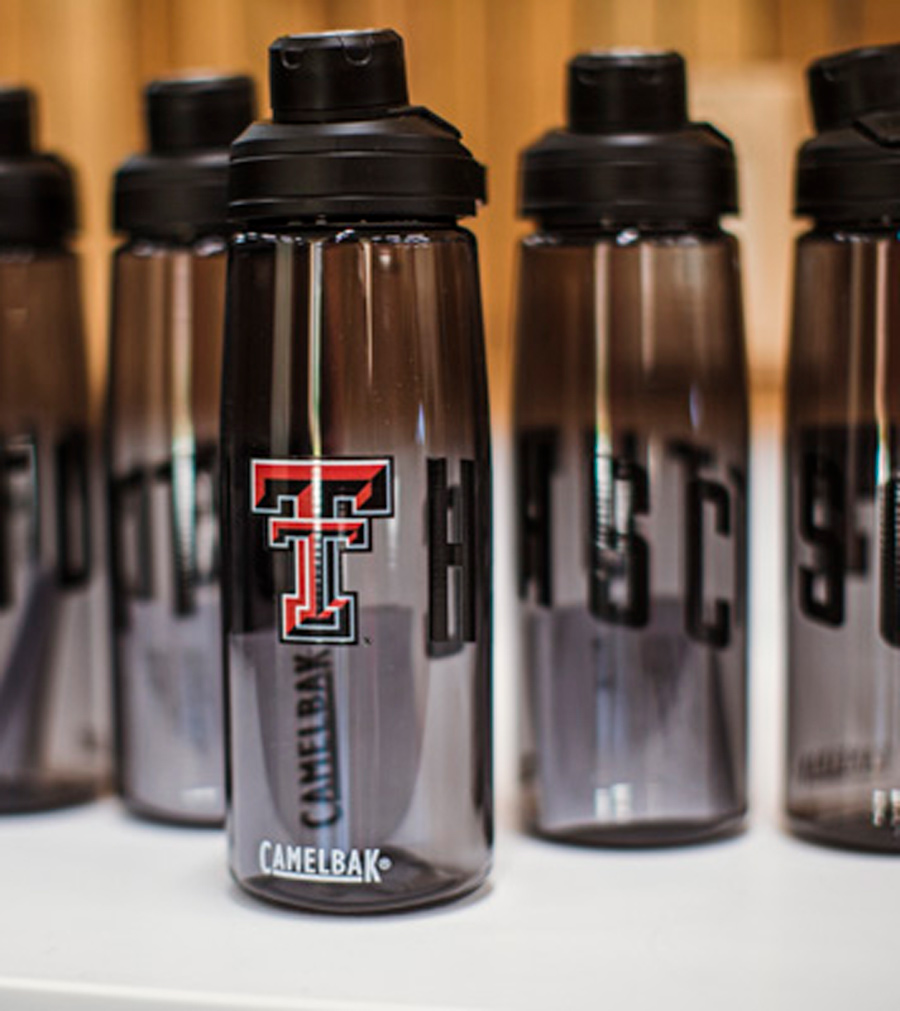
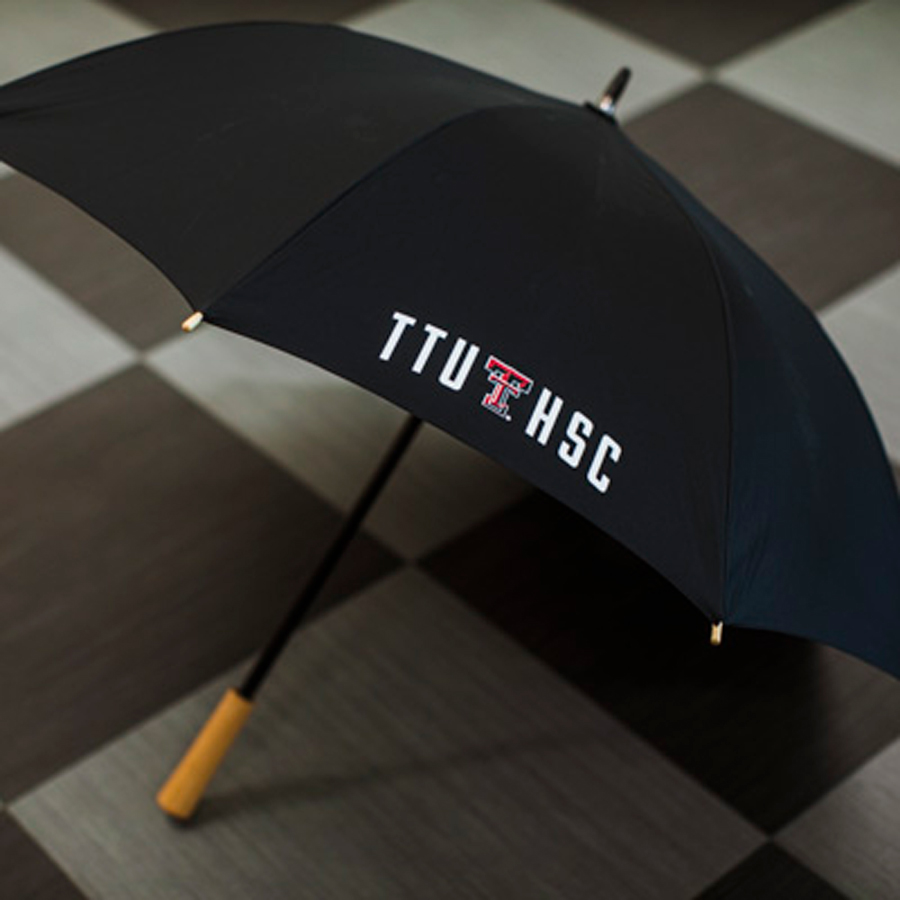

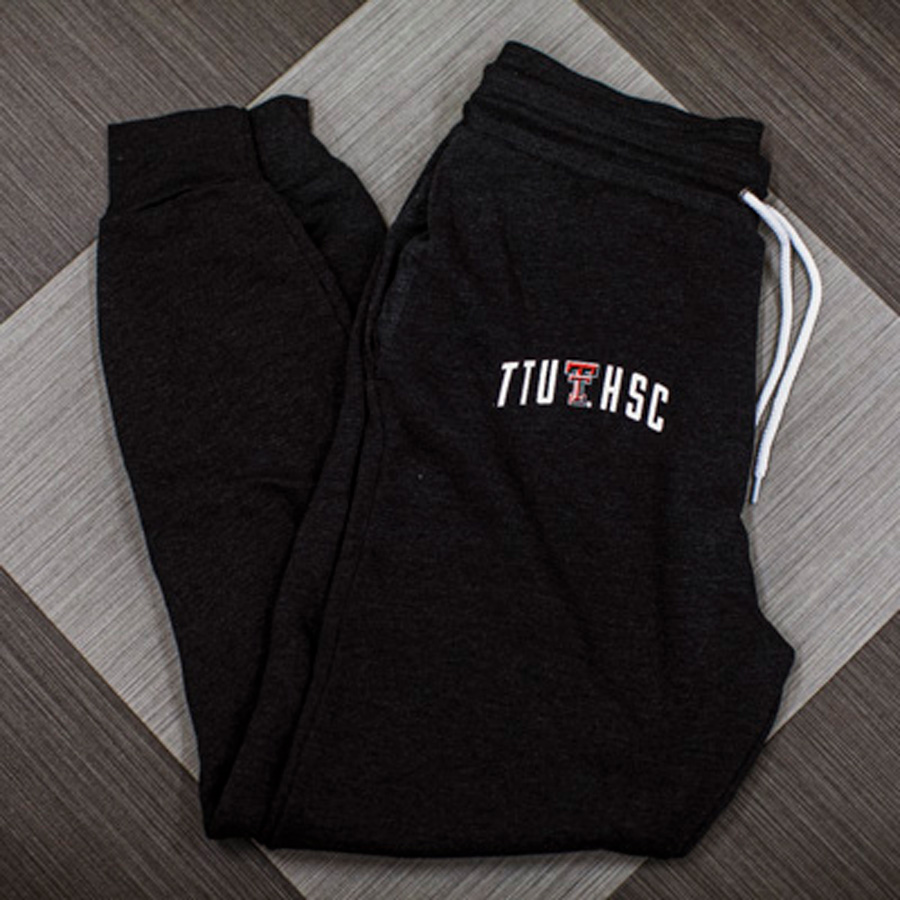

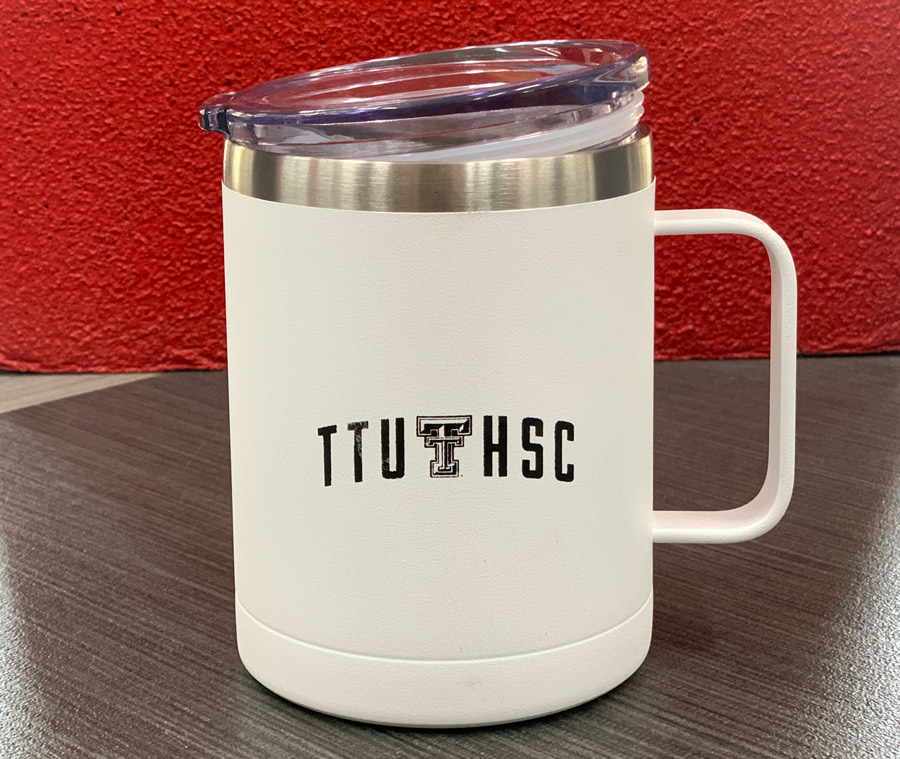
 in store: Monday-Friday 9am-4pm
in store: Monday-Friday 9am-4pm
